The best mid-tower cases in 2022
The best mid-tower case is sure to be a popular choice among PC builders. The mid-tower offers capacity and option without the Goliathan stature of a full-tower case, and it doesn't require any unusual or expensive PC parts like a Mini-ITX might. It's the real all-rounder of PC gaming, and a great candidate for your next PC.
It's tough to get a hold of the best graphics cards but there are still a ton of quality cases to choose from before you get into your build. If you're looking to make a statement best full tower cases will offer space for a truly monumental, money-no-object build. Otherwise, a mid-tower case will give you a good starting point. These are the cases that maintain a small footprint in your home, but are great at keeping everything tidy and, hopefully, cool.
Whether you're pulling together a whole new PC, or just jamming in some upgrades, these mid-tower cases will offer plenty of space. It's only once you get down to the best Mini-ITX cases that things really start to get tricky.
There are a couple of things to look out for when searching for the best mid-tower PC case: you want ease of access to your components, good fan and radiator support as well as airflow, and quality materials used throughout. Oh, and you also want it to look badass.
It's vital to get the case right—especially if you've spent a ton of money on your new graphics card—so we've checked a bunch of mid-tower cases and whittled them down to the most workable, high quality ones. After a few rounds of pulling components out and jamming them back in to new cases, here are those we found to be the best.
Best mid-tower cases 2022
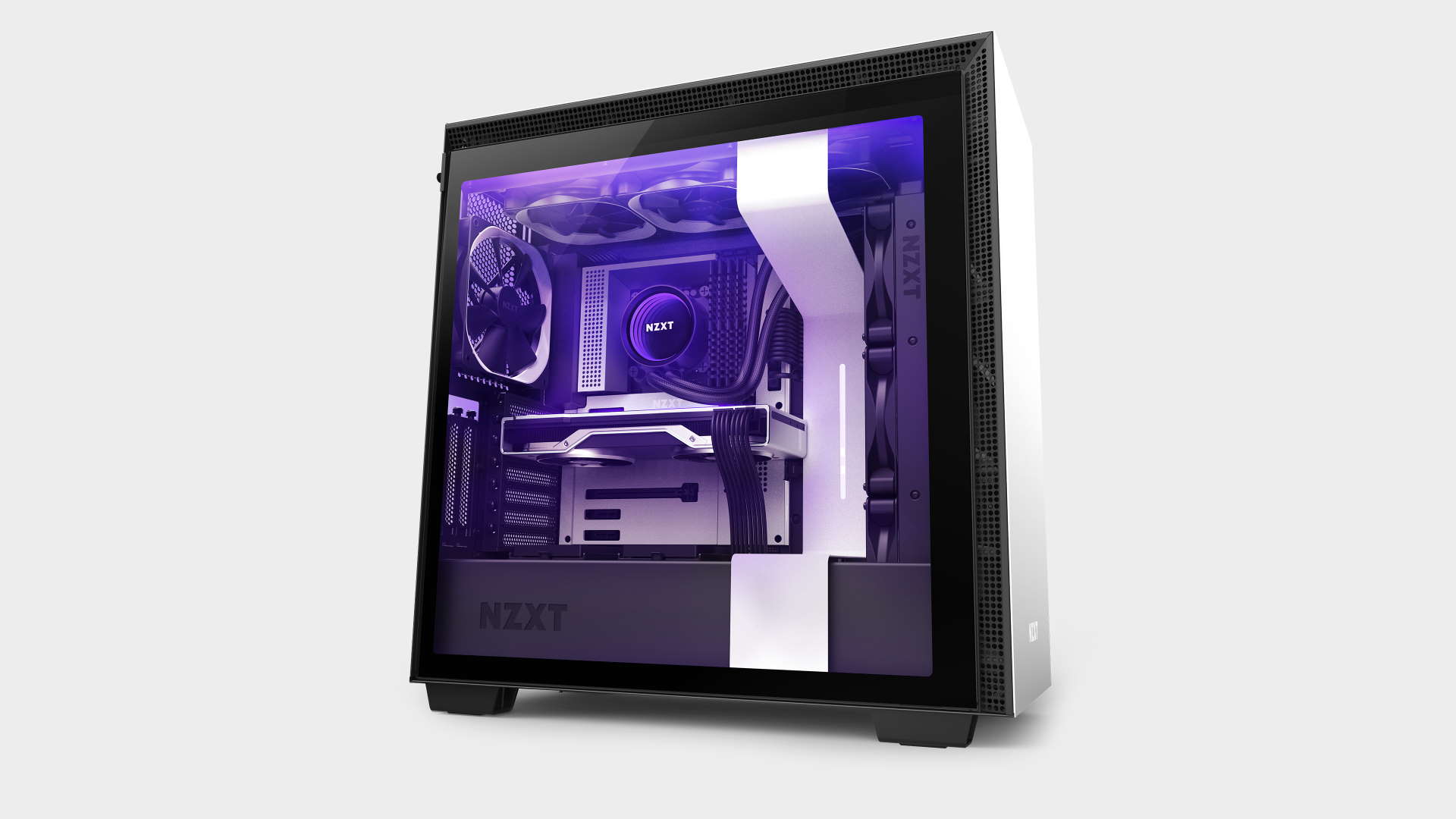
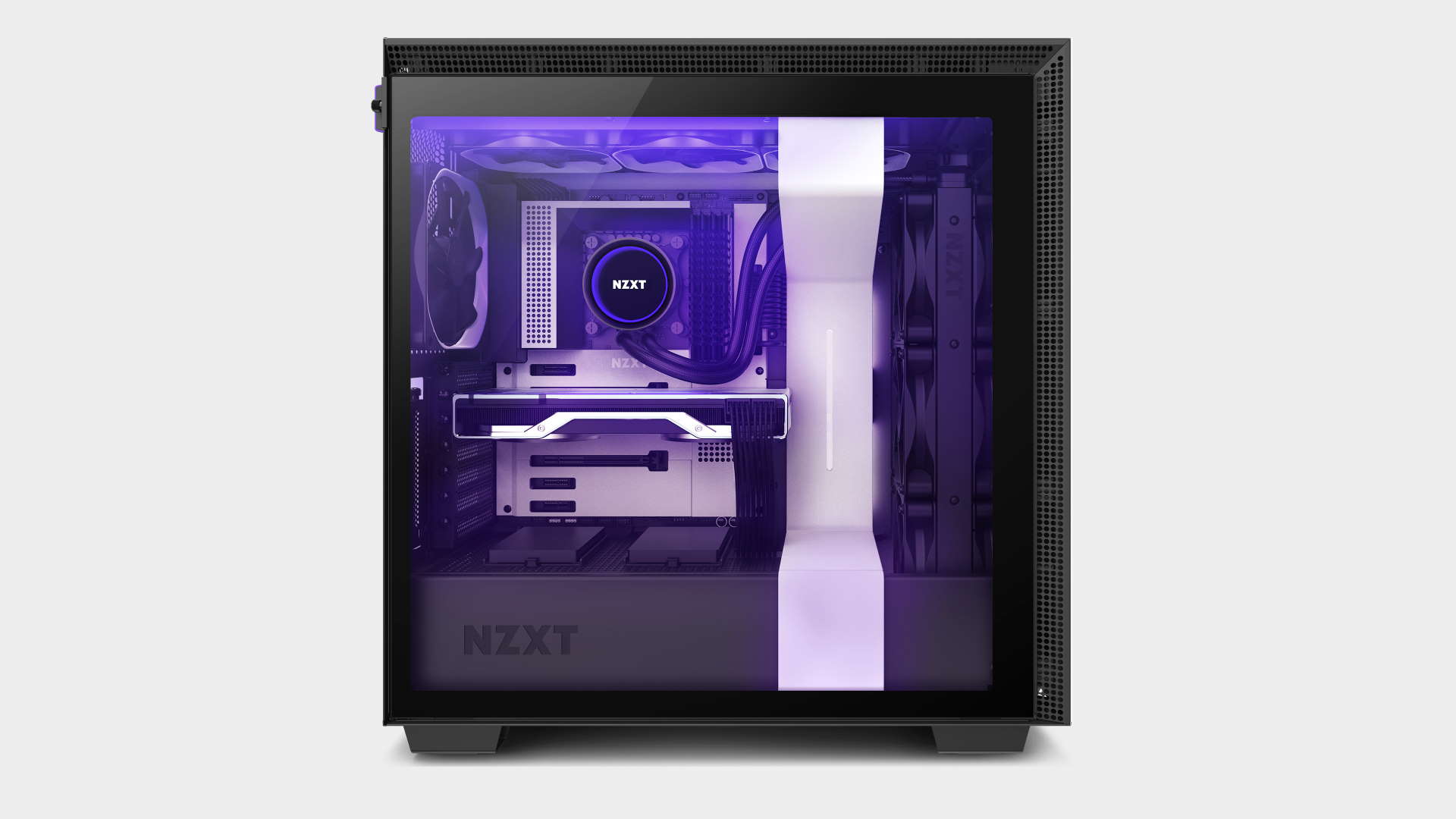
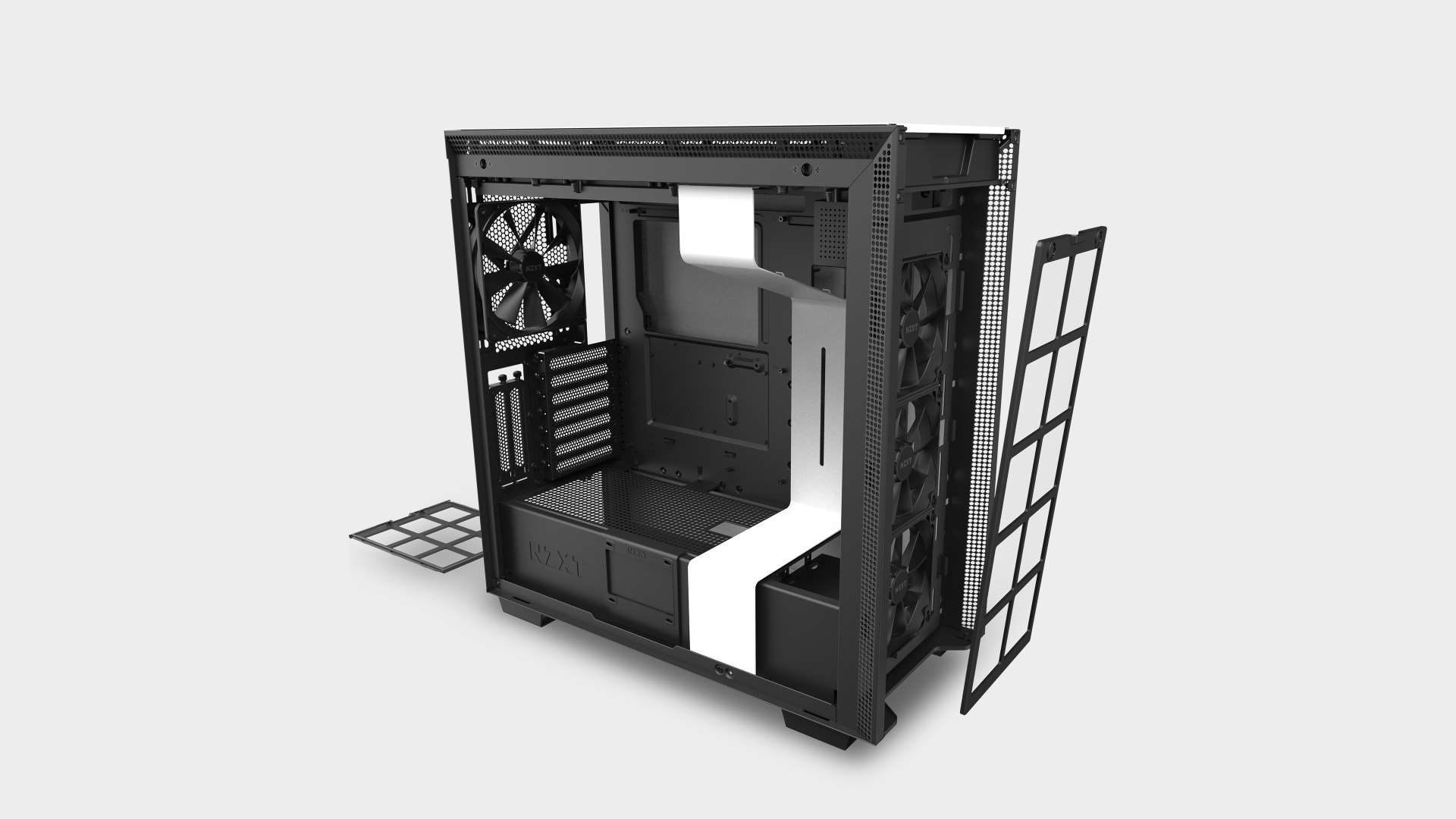
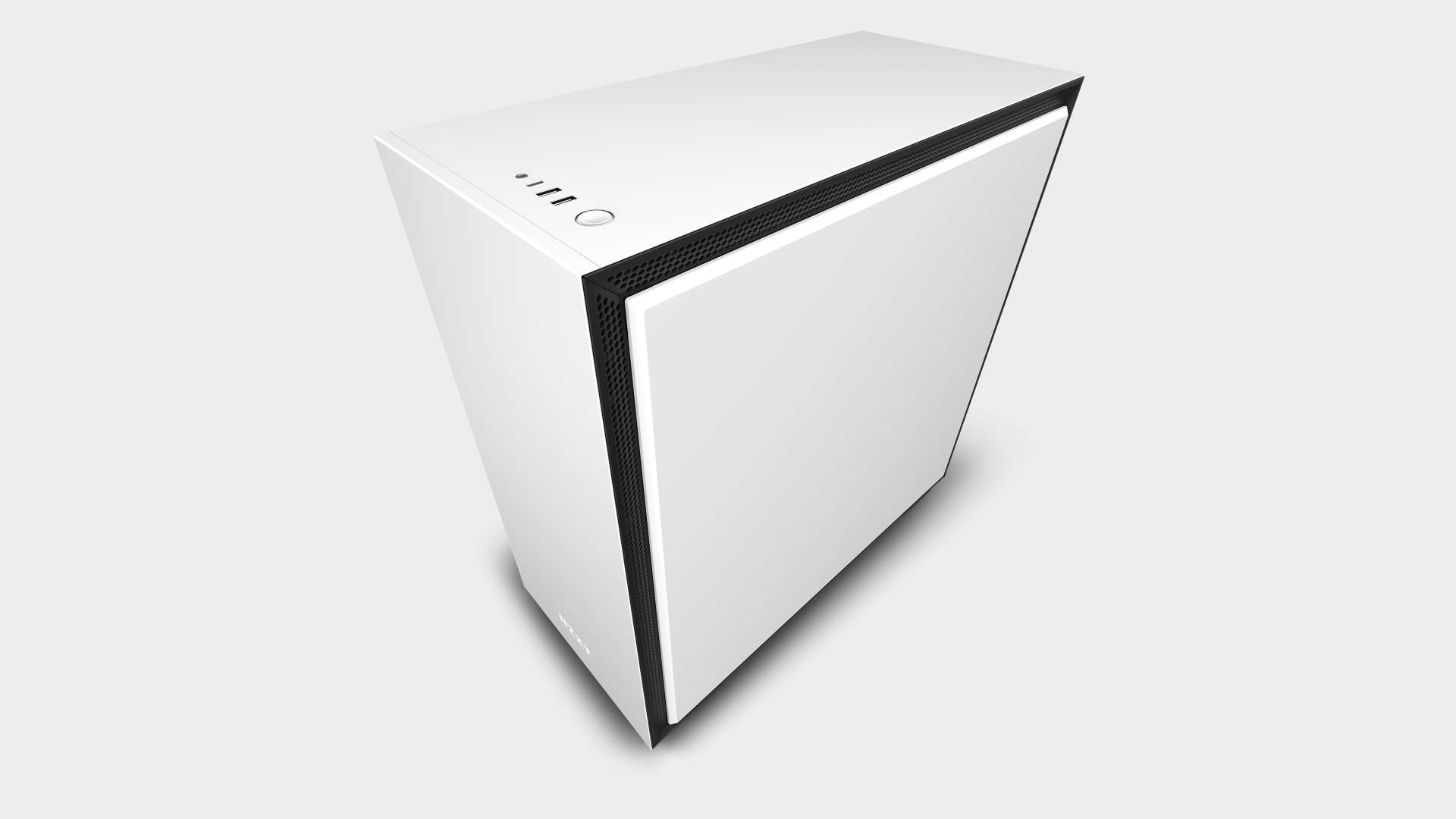
This most recent iteration of NZXT's "smart" chassis brings a couple of new features to help modernize your build. This ultra-clean and uncomplicated mid-tower case emphasizes convenience above all. It includes many of the same trappings as its predecessor, but costs a little bit more and has just a couple of neat changes. The NZXT H710i features a front panel USB 3.1 Type-C port and the ability to vertical mount your GPU with a separate PCIe riser.
The H710i features integrated RGB lighting around the tempered glass side panel, controlled by the NZXT CAM software and a built-in LED lighting hub that allows for easy control of RGB lighting and fan speeds as well. To keep things cool, the H710i features ventilation gutters that run the perimeter of each side of the case, aided by the four 120mm fans included with the case.
Cable routing is where the H710i shines—achieved primarily through a large aluminum slat that allows you to route your cables into the integrated cable channels on the back of the case. This case keeps everything clean and clutter-free, and the velcro straps built into the back help hold everything down. An excellent, and easy alternative to the rubber gasket solution found on some of the best mid-towers.
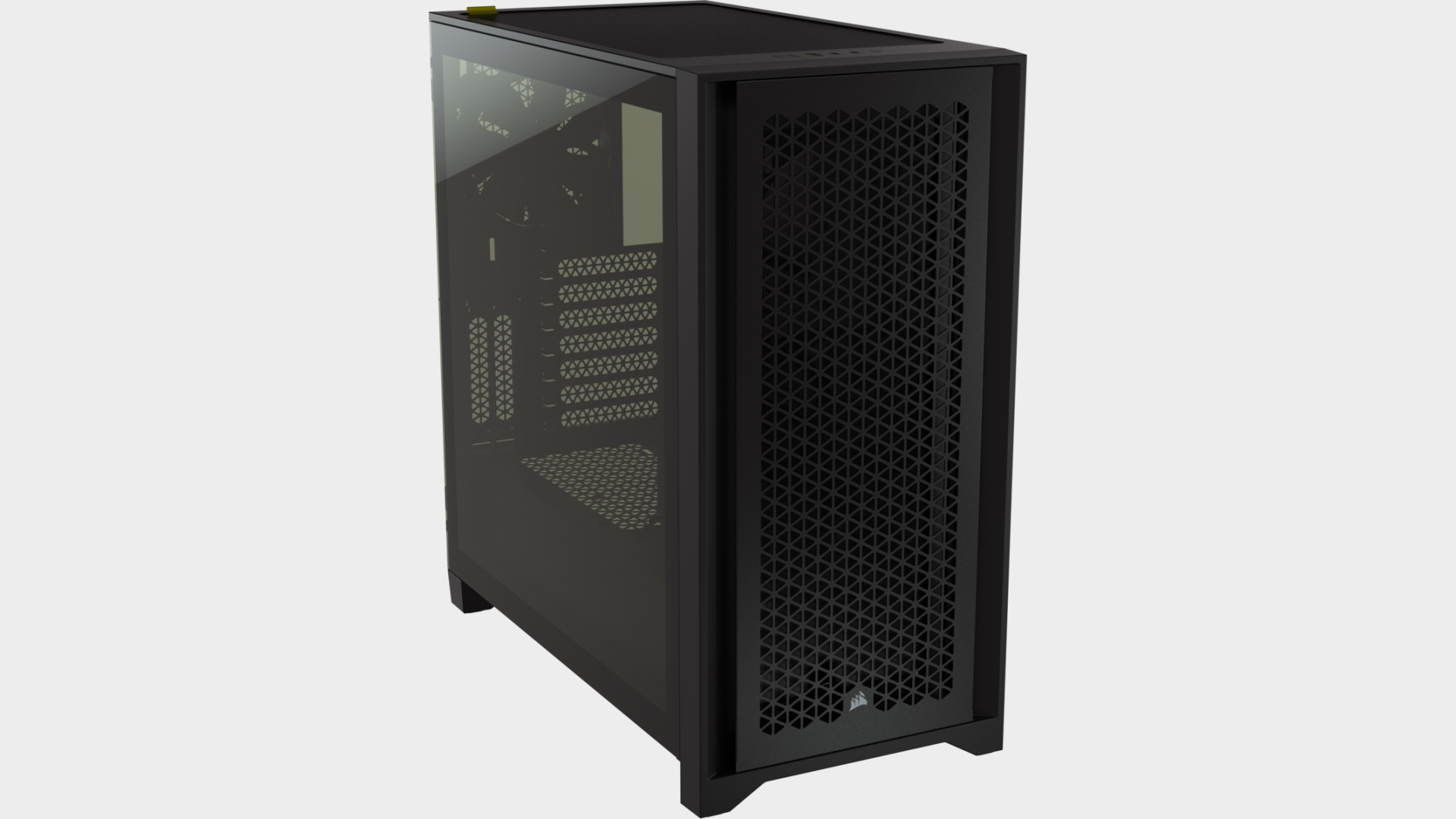
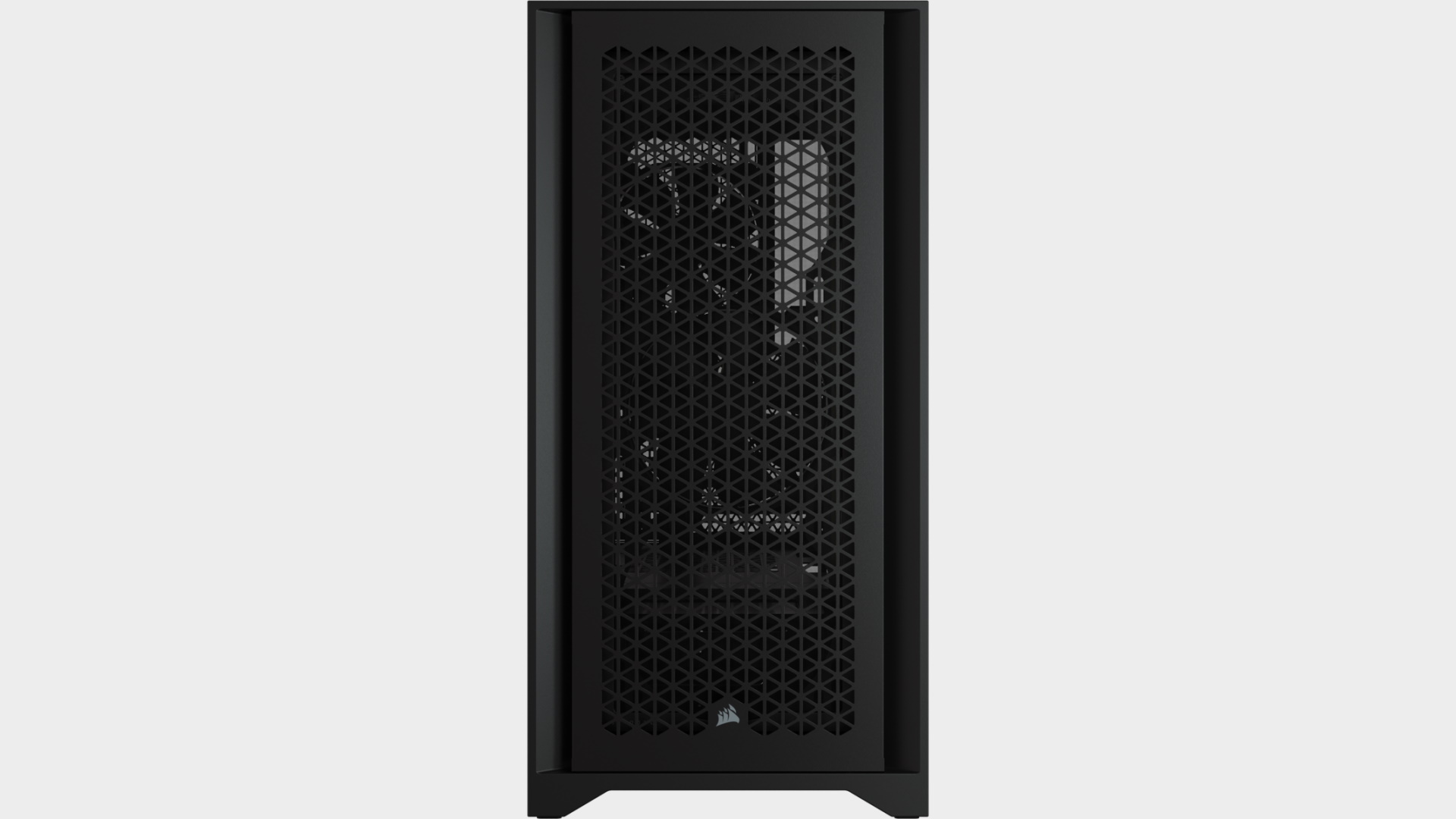
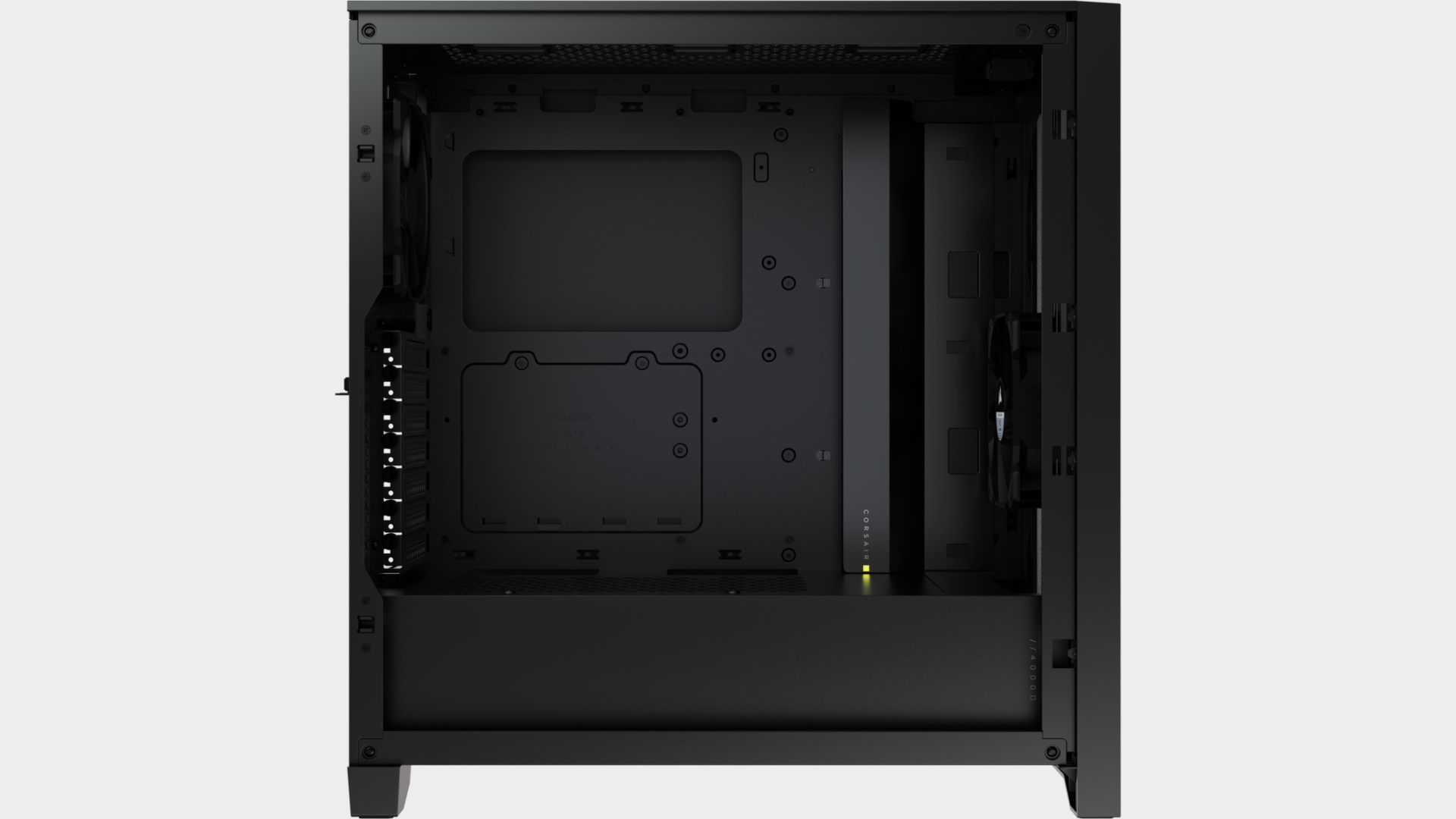
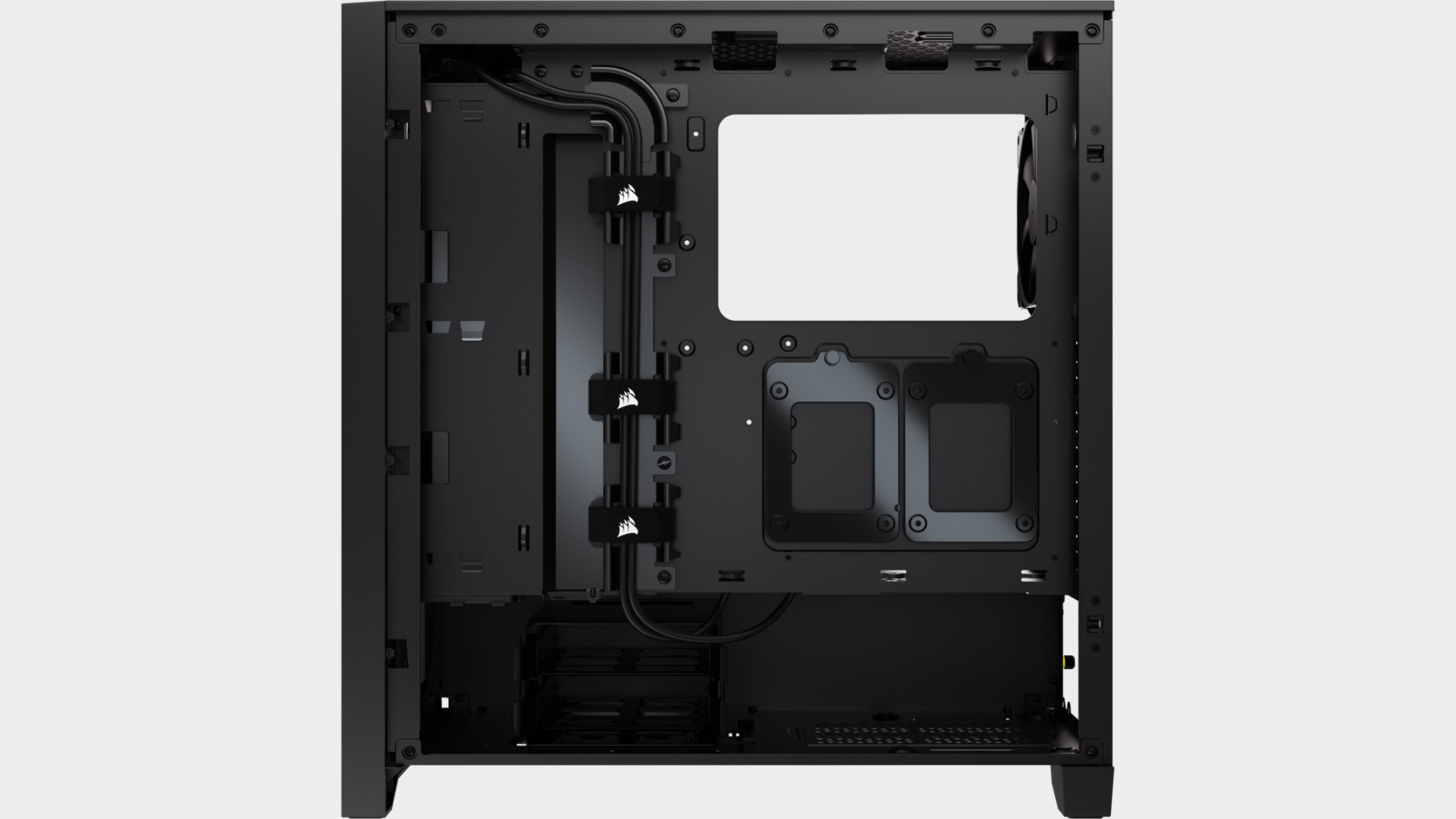
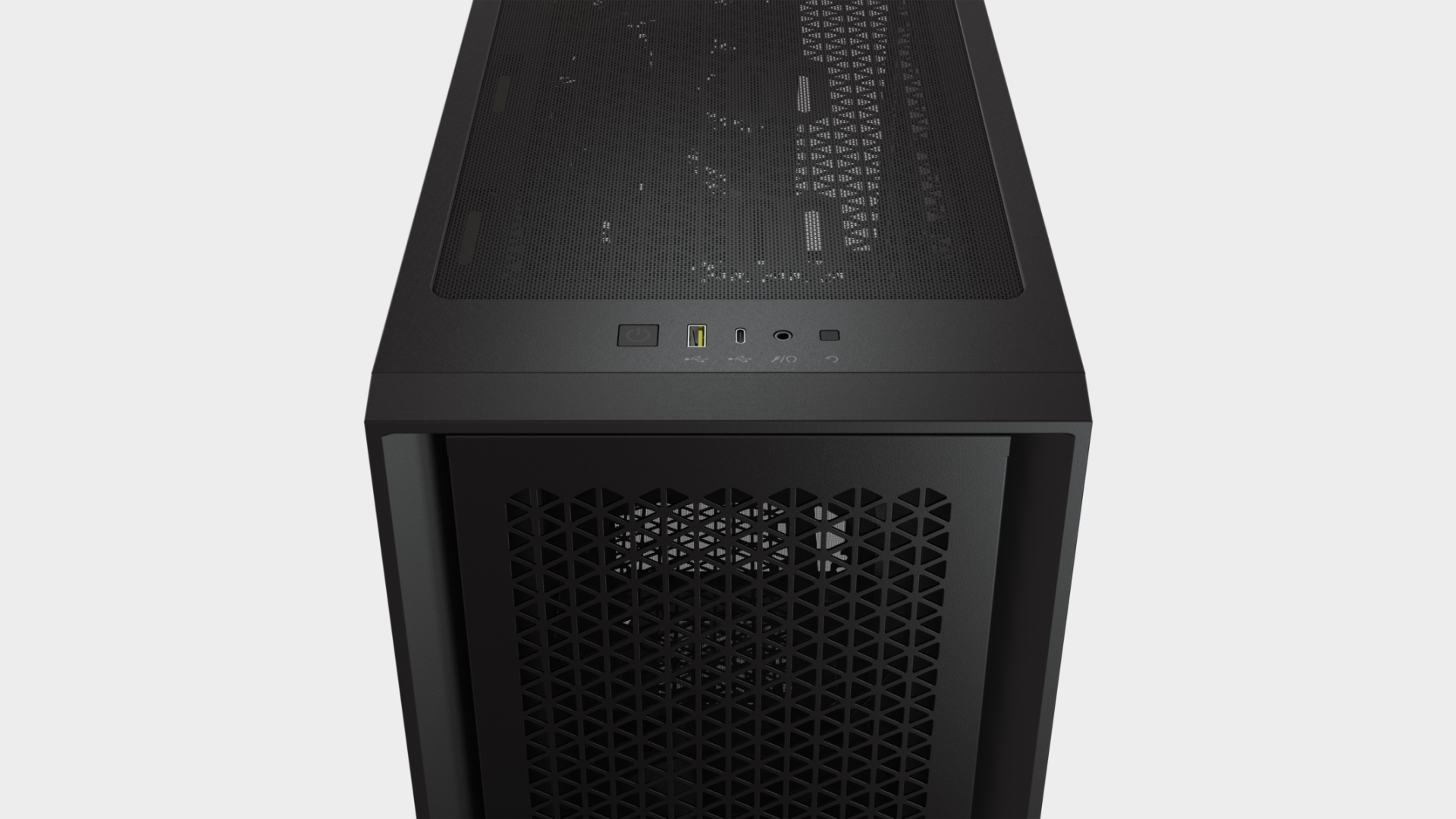
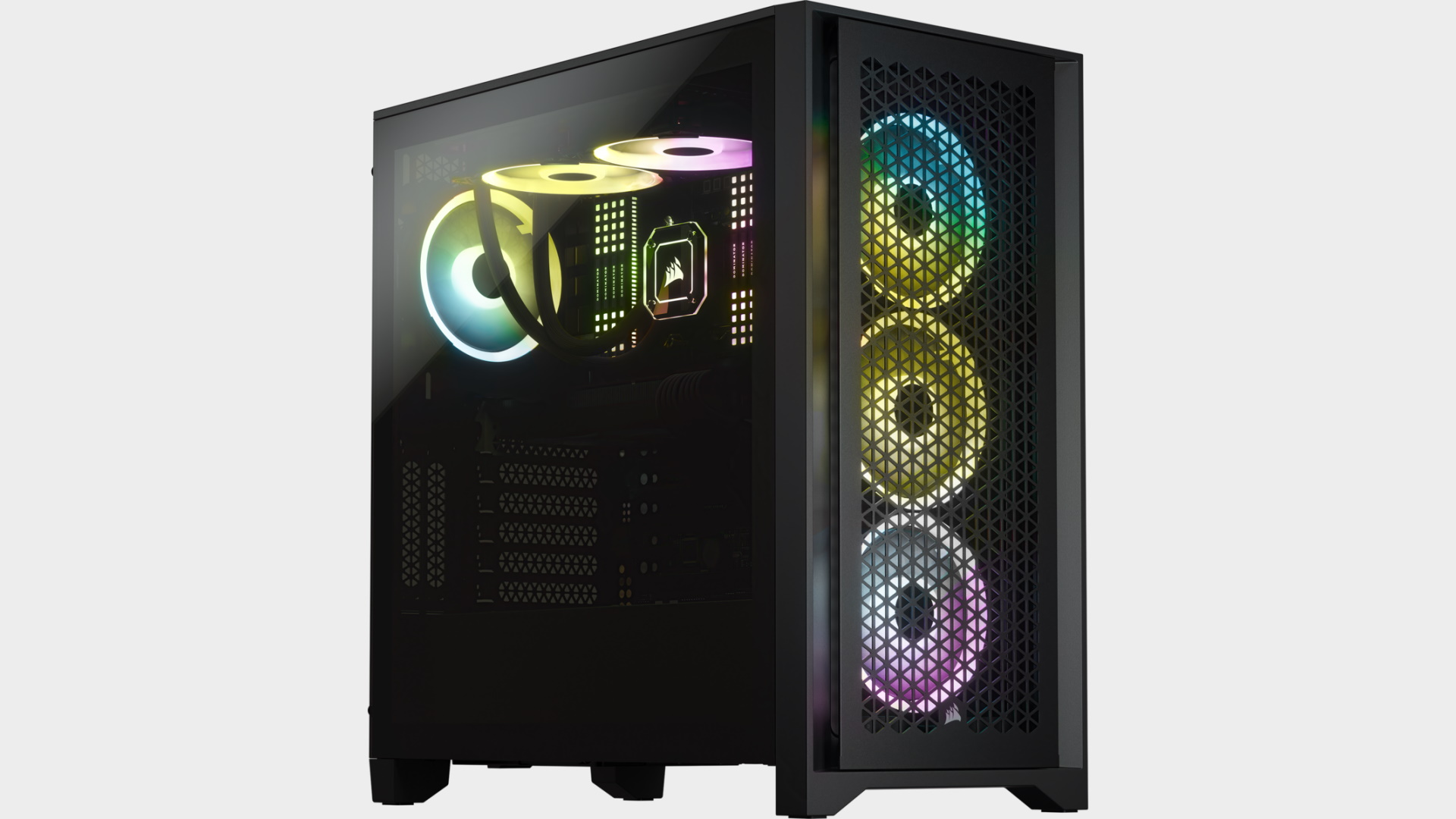
Corsair has made some great chassis over the years, but the look of some of them were starting to take precedence over functionality. That changed with the release of the 4000D Airflow, which shows that the two schools can be combined for a great-looking case that also offers great airflow. The ventilated front panel means the fans can run slower and quieter while offering the same level of cooling over closed off cases.
Building a system inside the 4000D Airflow is straightforward, with plenty of room where you need it most. The channel in front of and behind the motherboard tray makes routing your main cables that much easier, and there's enough space here for a variety of radiators and cooling setups—you can fit up to a 360mm radiator in the front and 280mm radiator in the roof. Although the latter can be tight against the top of the motherboard, it's still possible.
You'll find easy-to-remove dust filters on the top, front, and below the PSU for easy cleaning. Popping off the front panel is simple too, which makes installing fans or a radiator that much easier. Overall, it's a reassuring return to form for Corsair. When you consider that all of this can be picked up for well under $100, it's hard to not be impressed by the overall package. It makes for a great home for anything from a simple mid-range build to a high-end powerhouse, and we've used it as the basis for our own mainstream PC Gamer test rig.
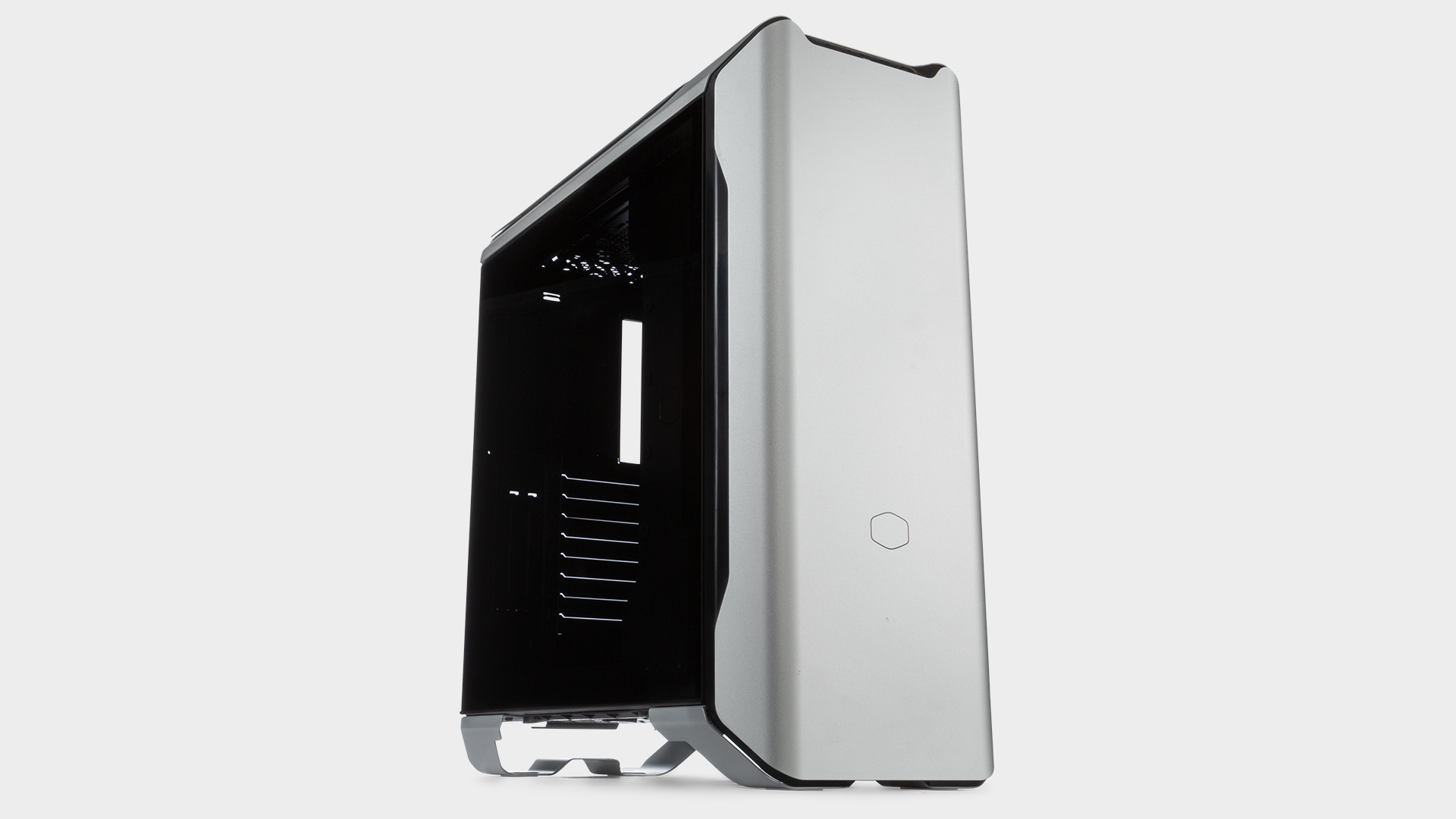
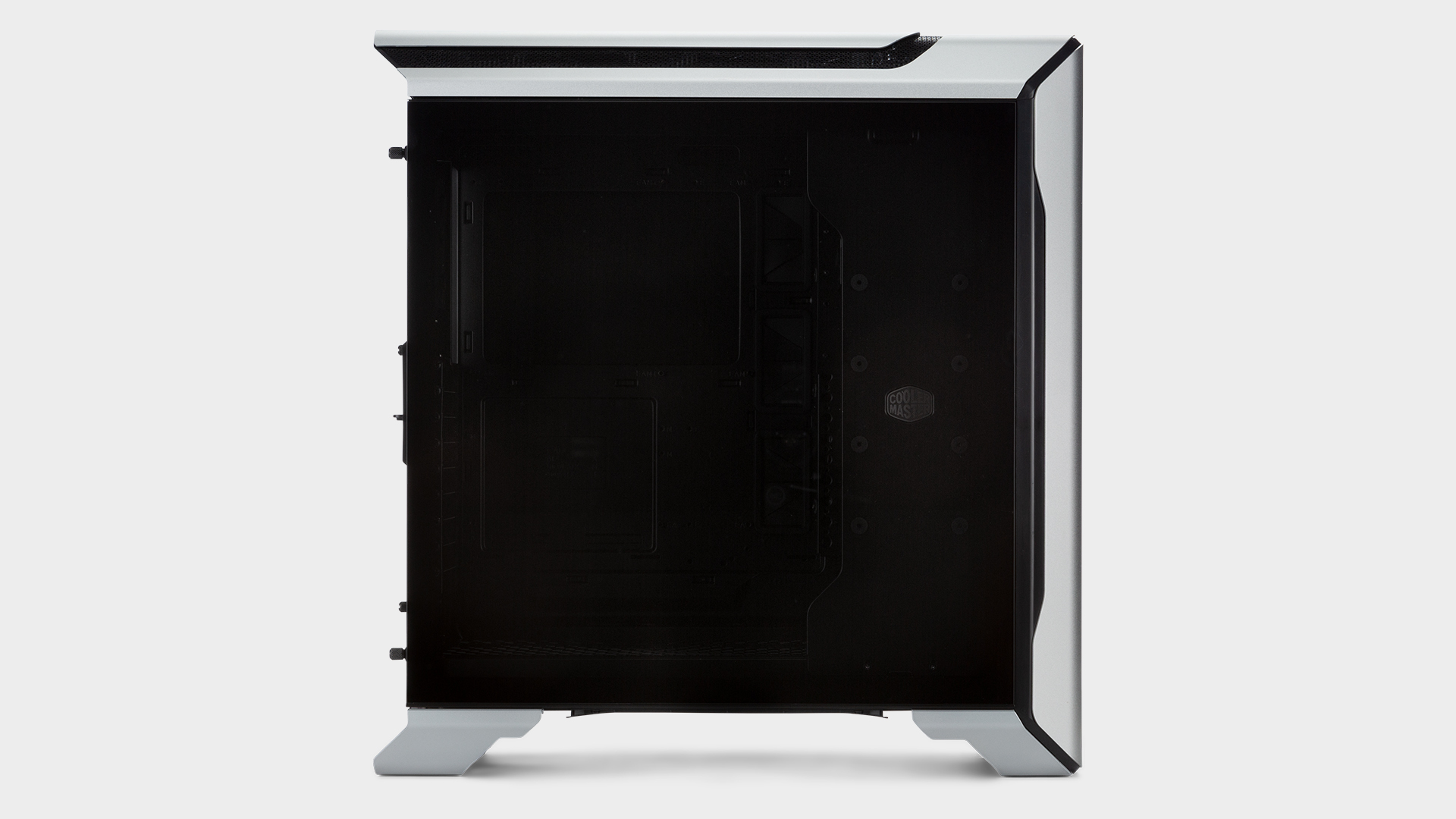
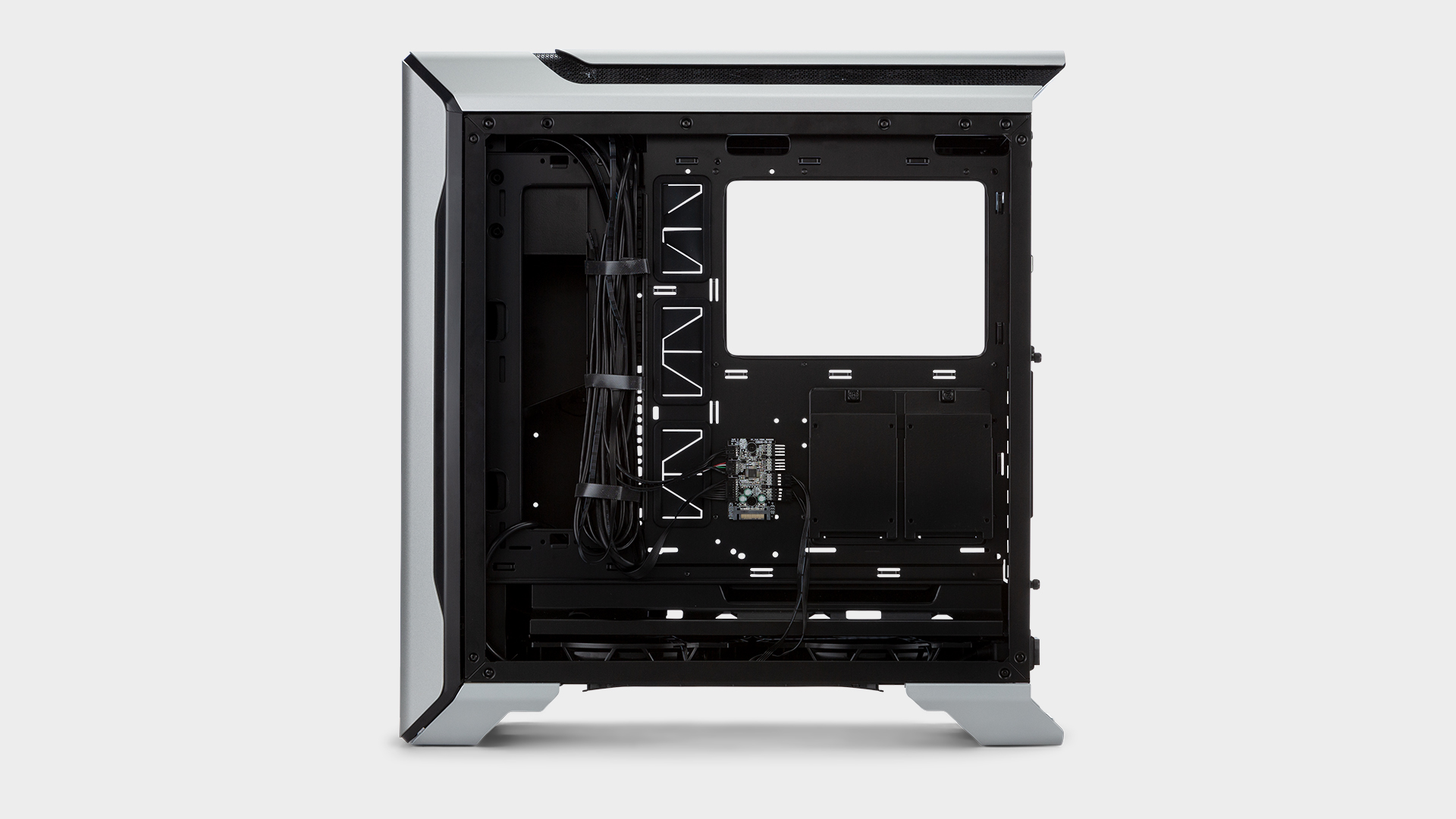
The MasterCase SL600M has to be one of Cooler Master's most beautifully designed cases. It features anodized aluminum with a sand-blasted finish and just enough attitude to make it look sleek, futuristic, and elegant, all at once. We were even more impressed once we opened it up to build in it.
The CM SL600M is the first case we've tested with a vertical chimney design for its cooling that just makes sense and works. Cooler Master went all-in with the SL600M, completely sealing the front and moving the entire PSU shroud and housing from the bottom to the front of the case. All of that newly opened space combined with generous feet allow the case to funnel the airflow directly onto the GPU.
While the CPU temperatures do suffer slightly from this design, the SL600M has the lowest GPU temperatures out of every mid-tower we've tested. Mount the graphics card vertically and away from the glass with the rotatable PCI bracket, and cooling improves even further. While the case features all of the connectivity and convenience you'd expect in a high-end mid-tower, it is, unfortunately, missing an included GPU riser cable.
Read our full Cooler Master MasterCase SL600M review.
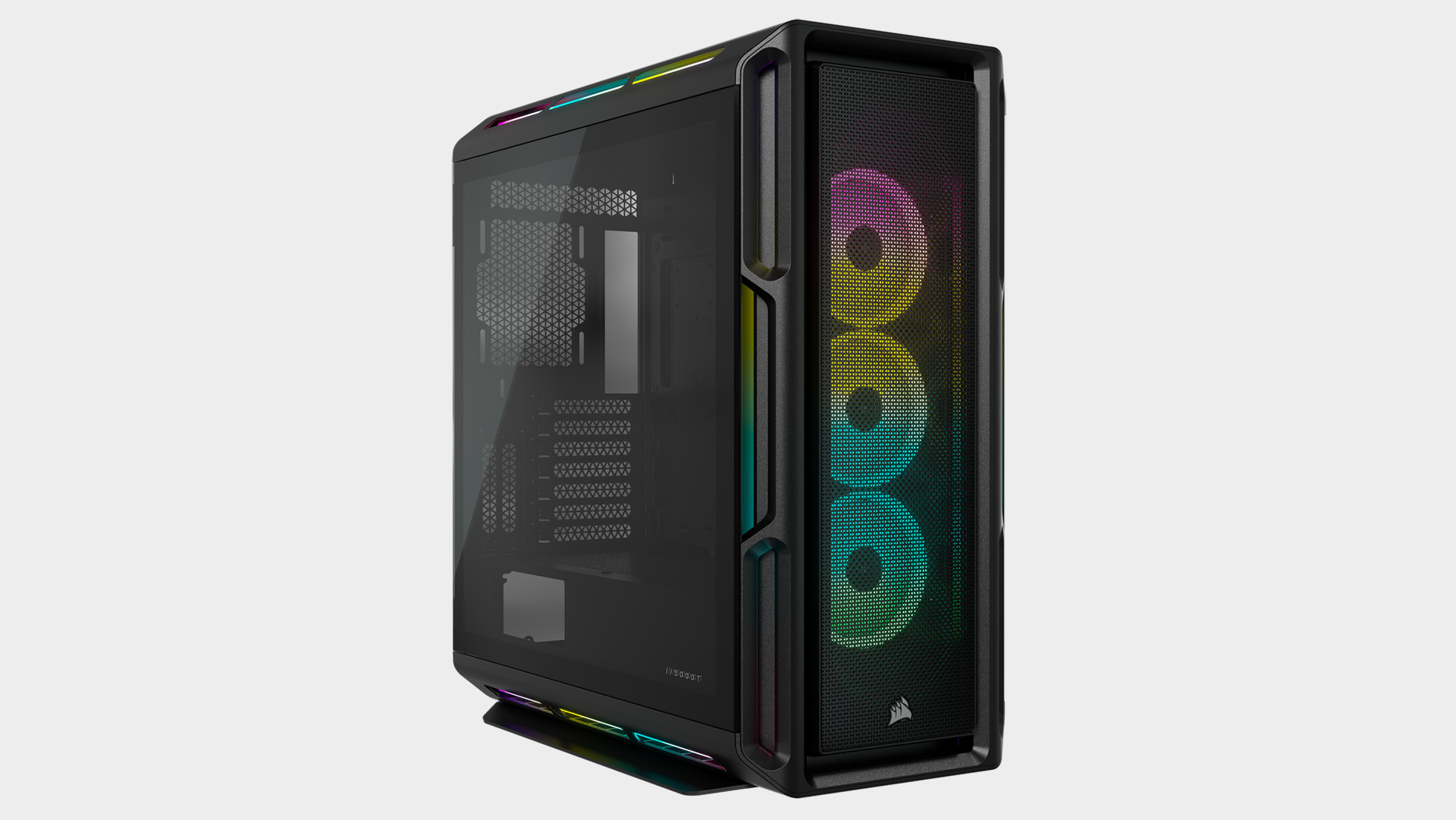
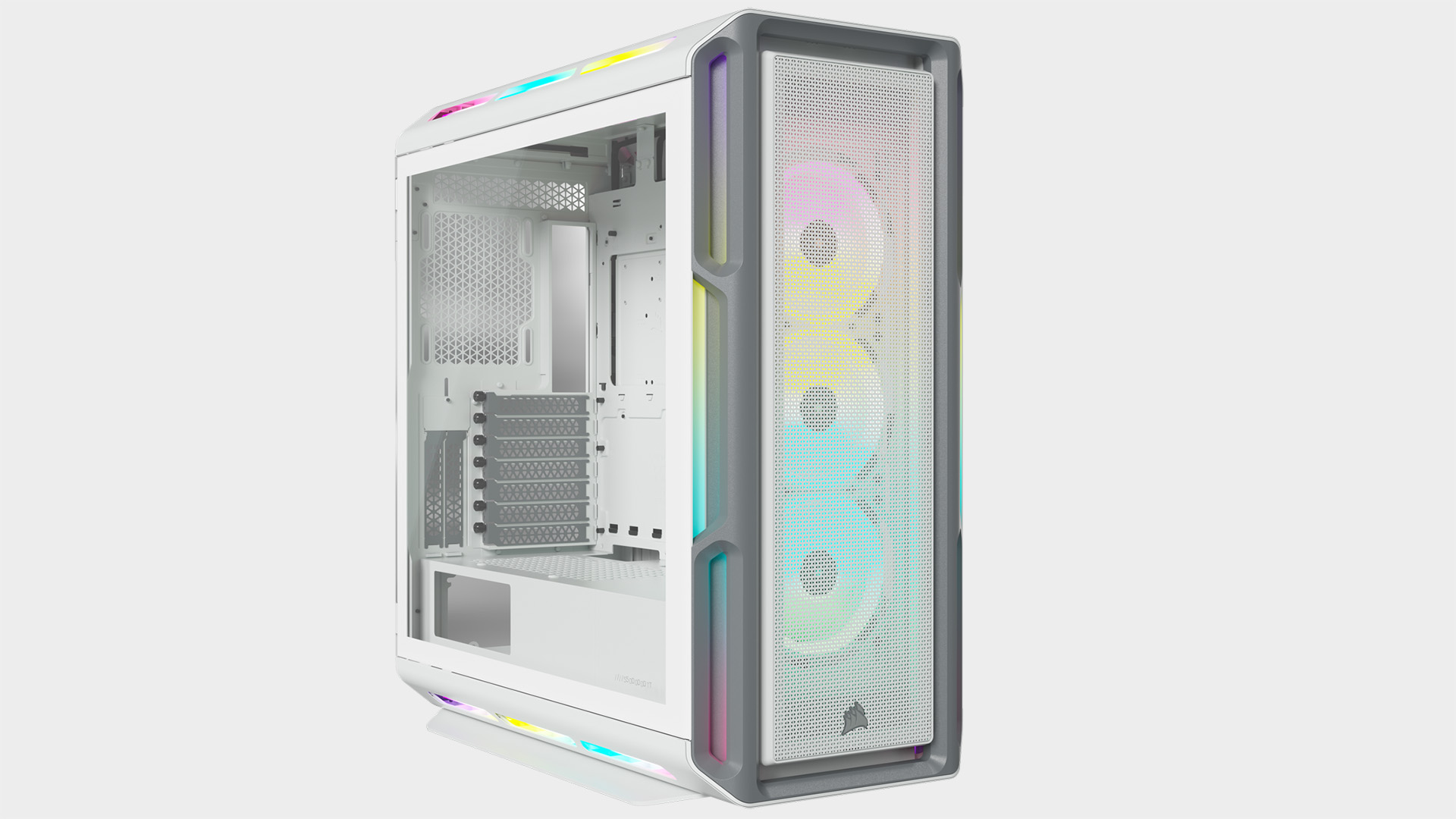
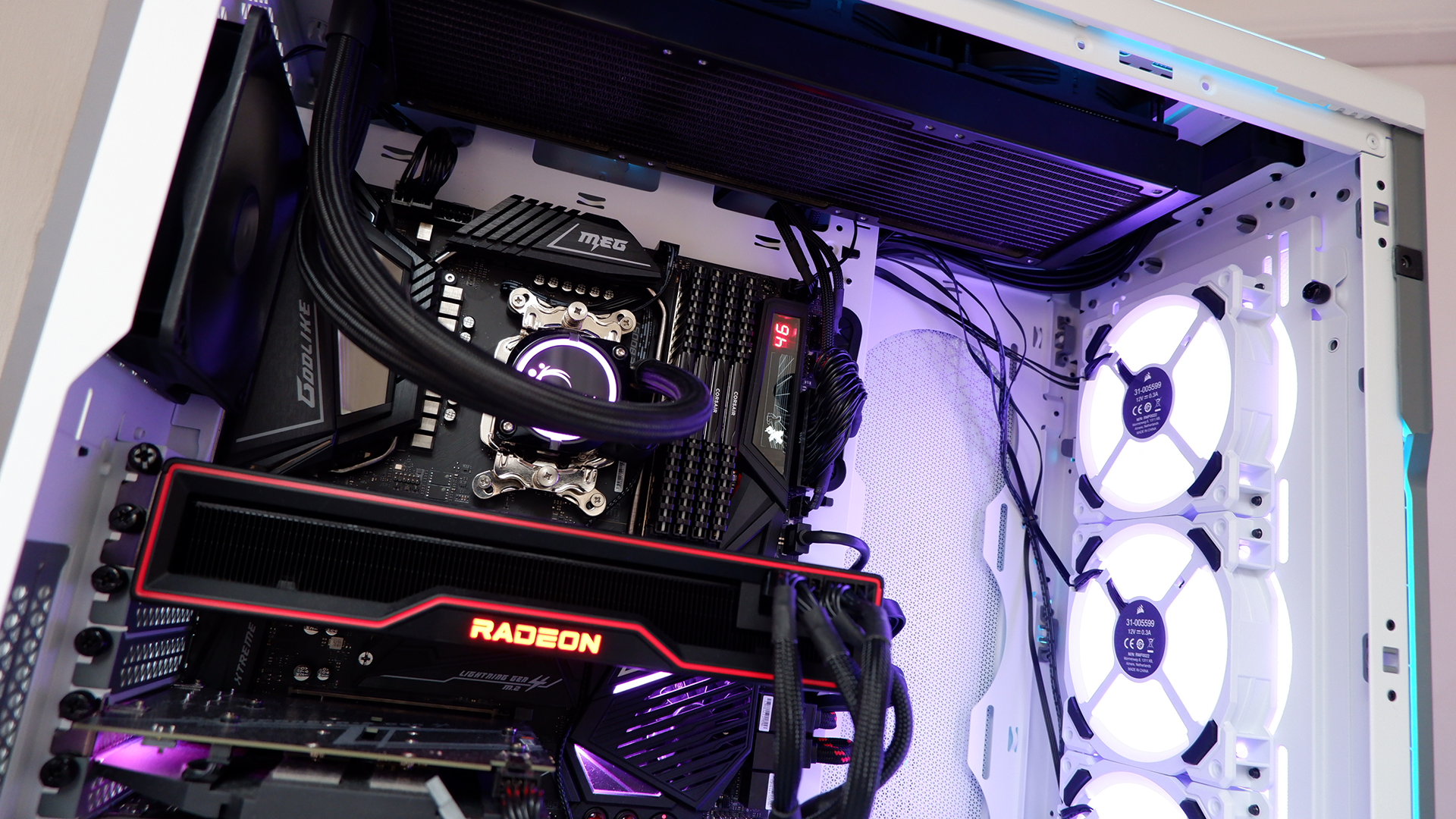
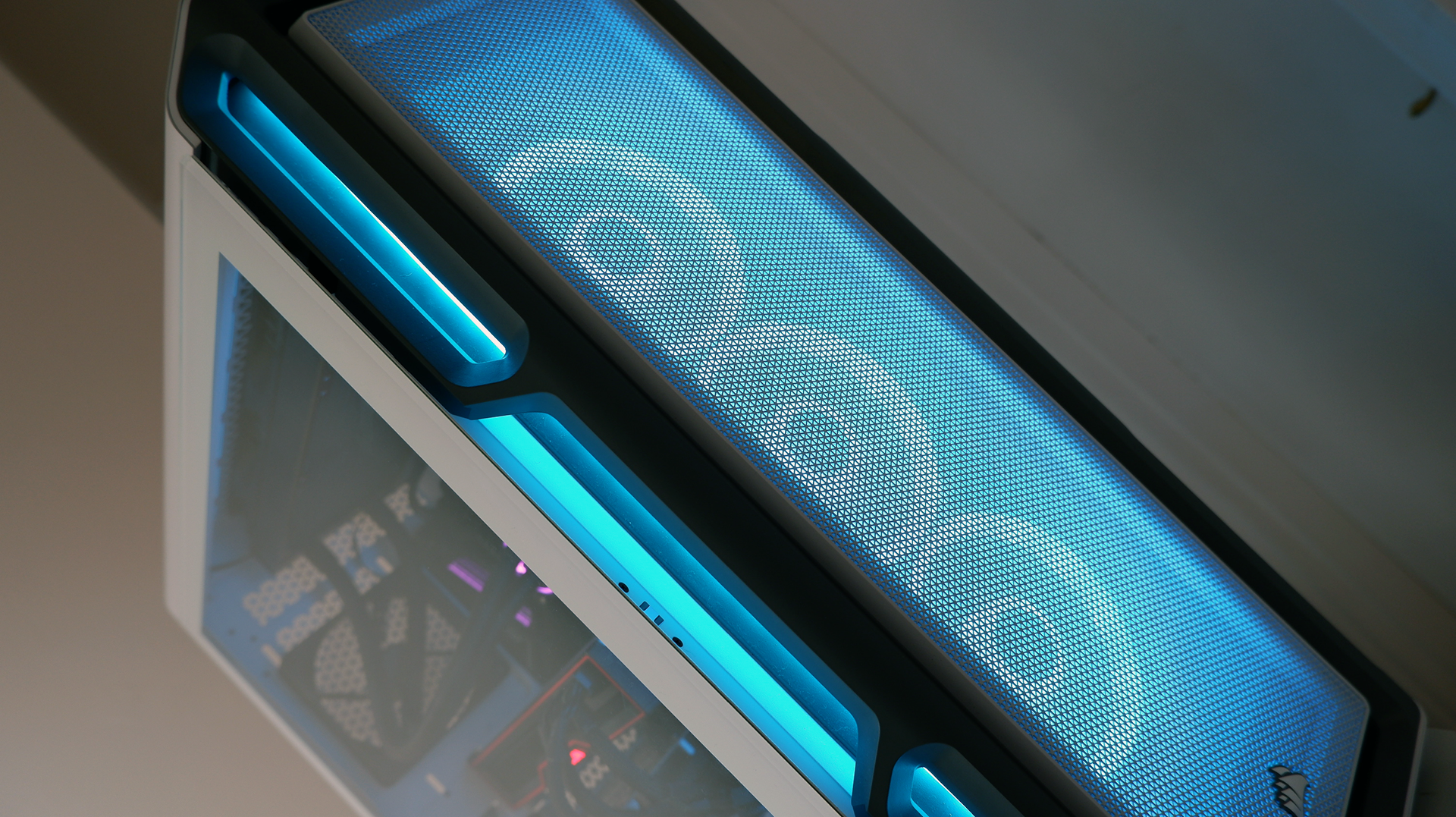
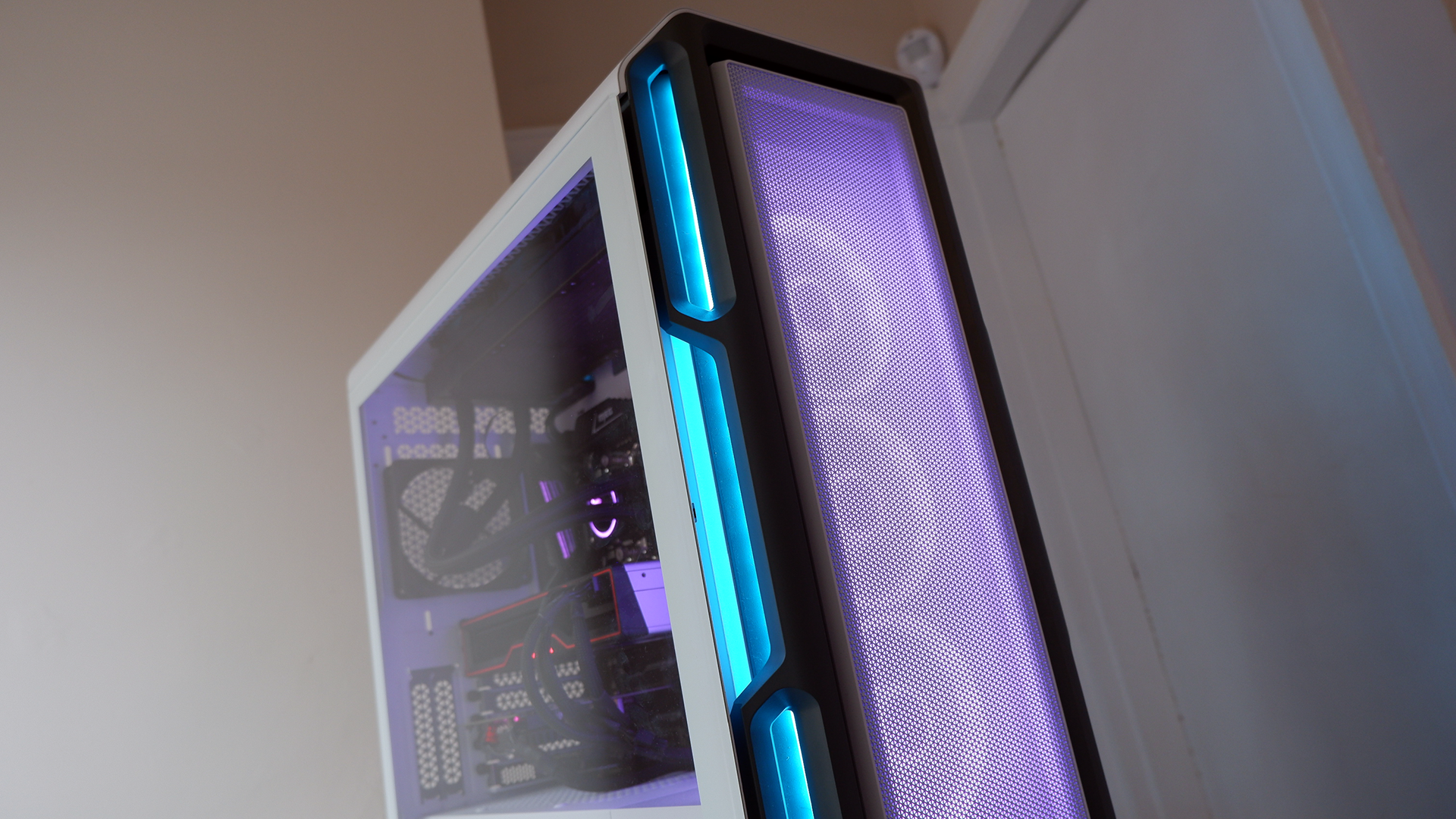
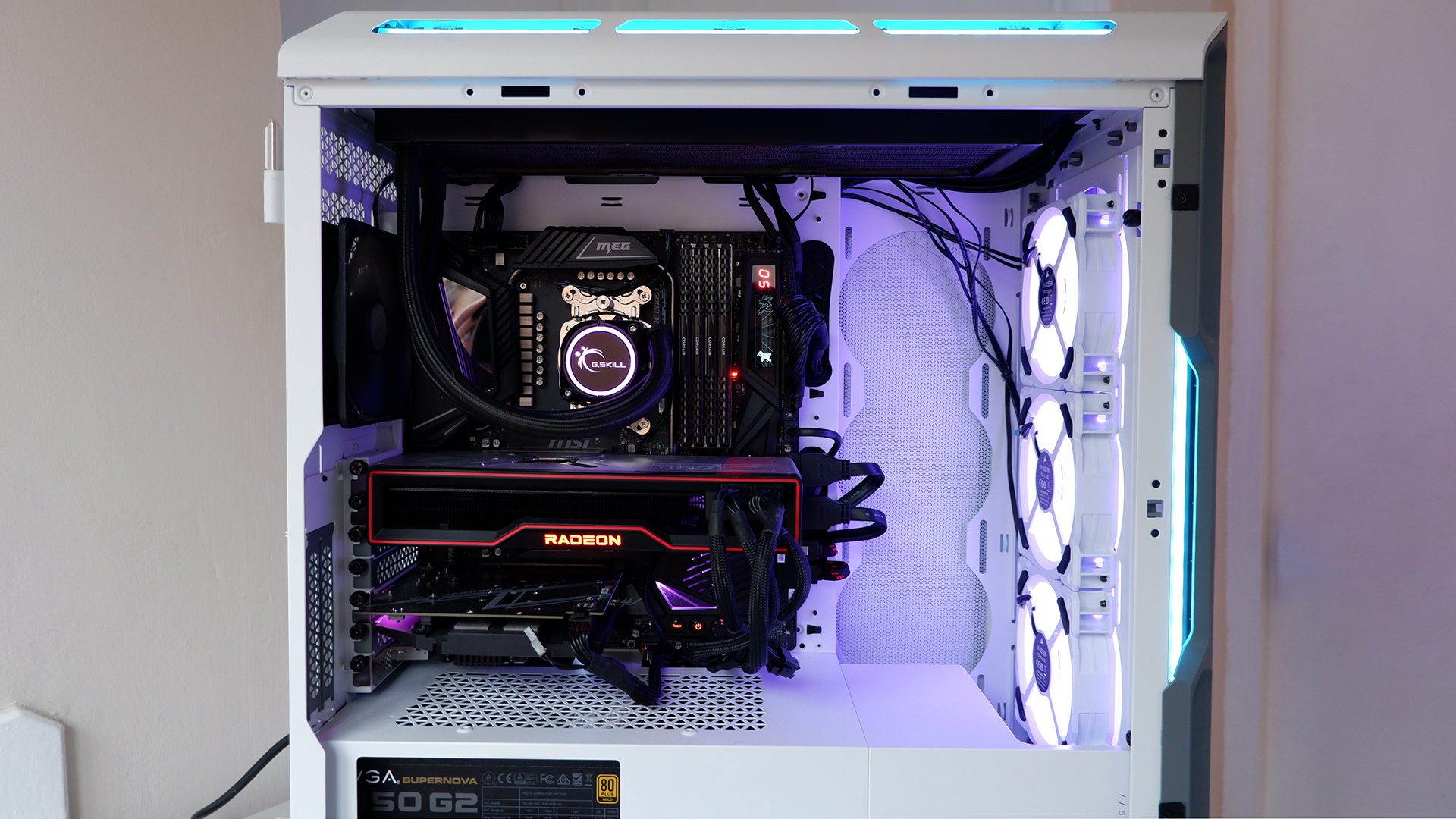
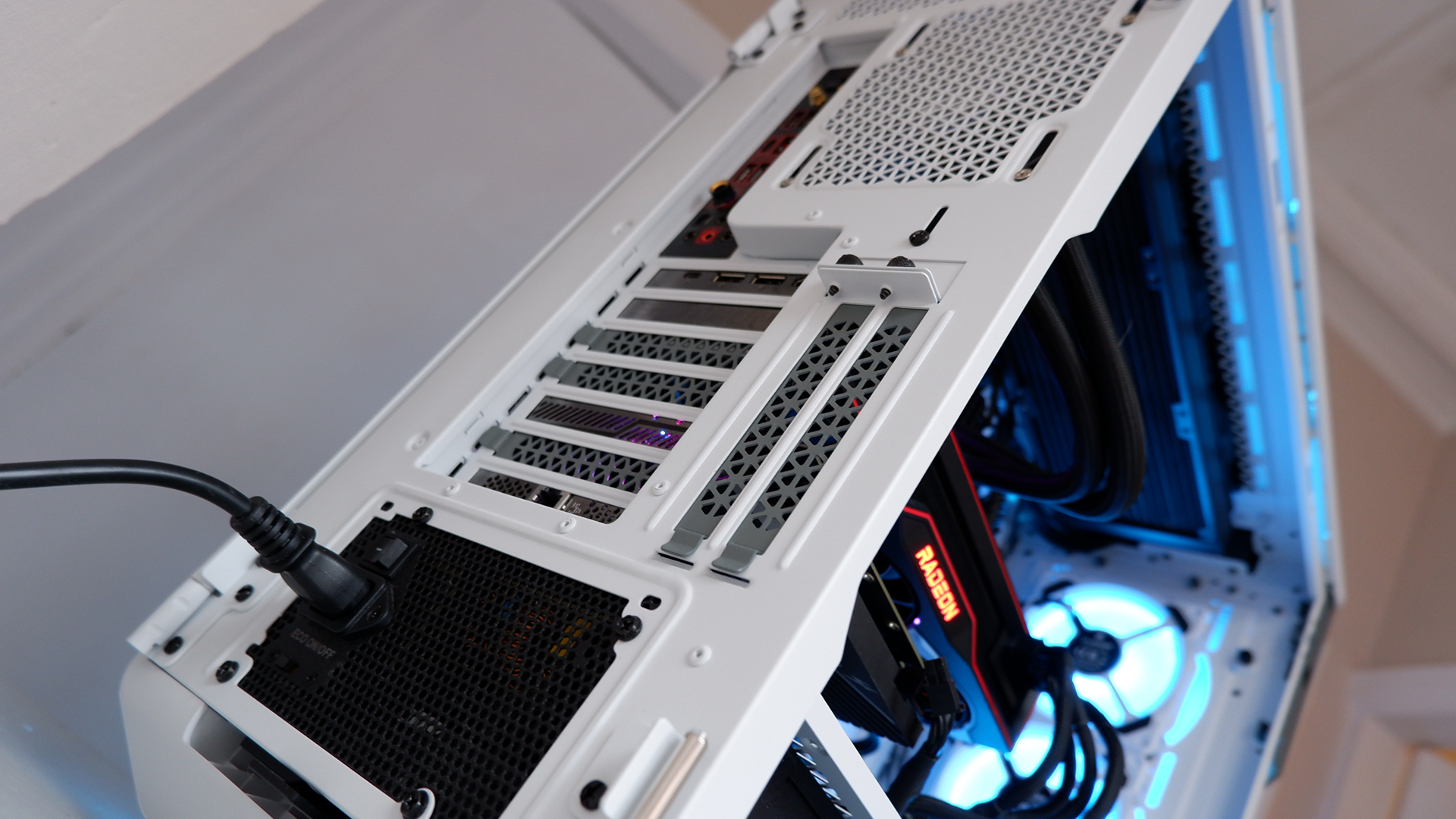
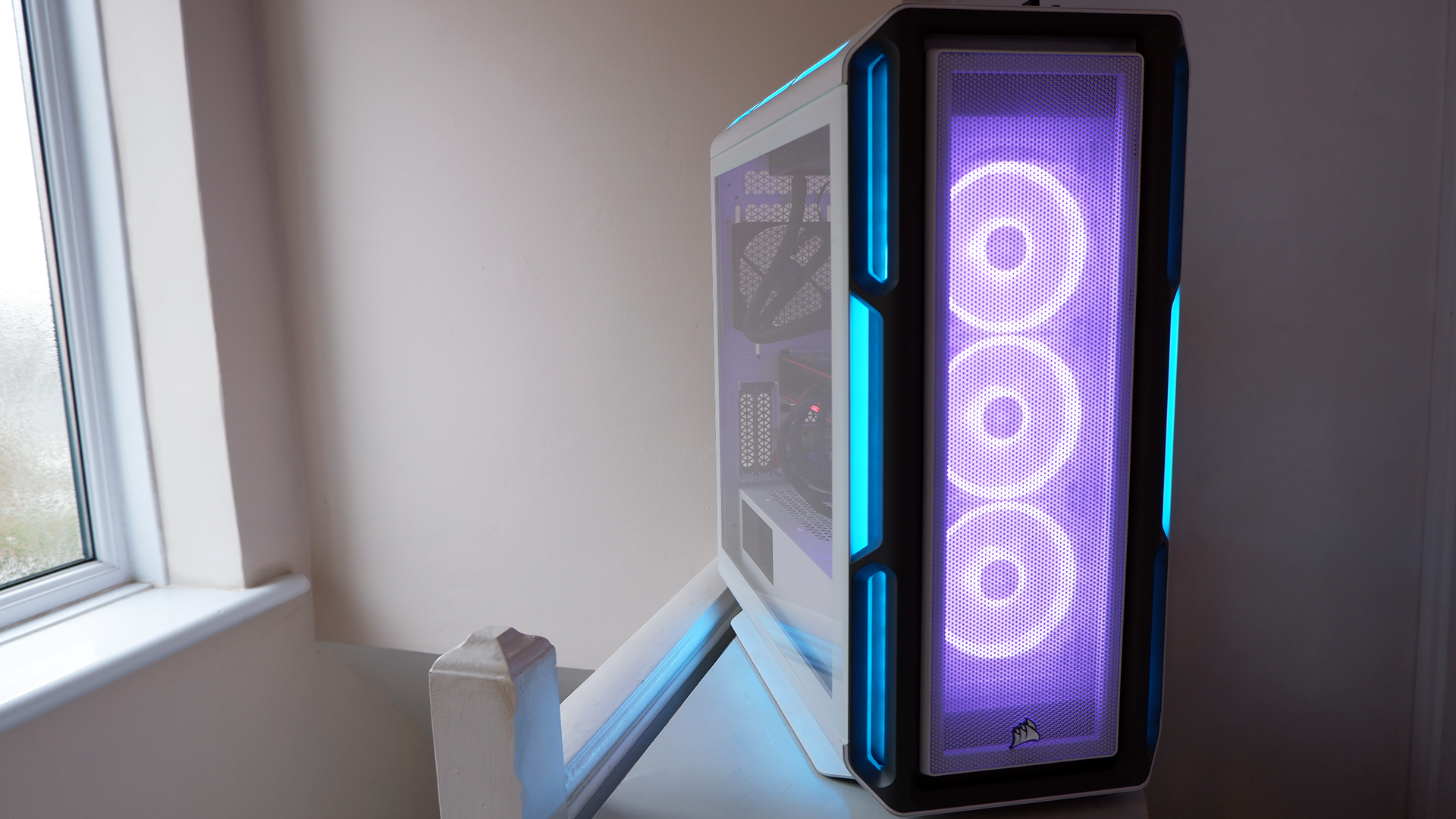
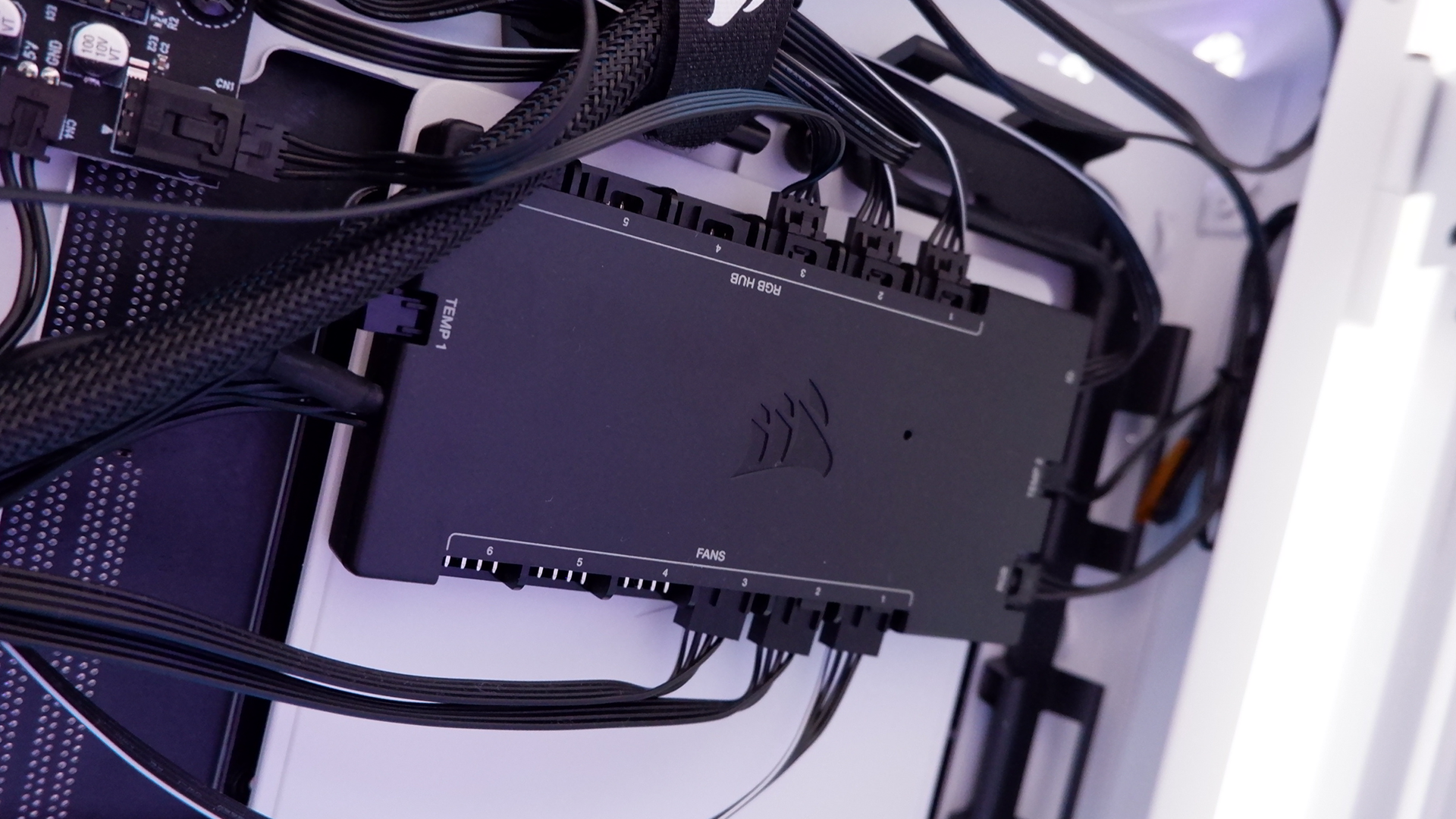
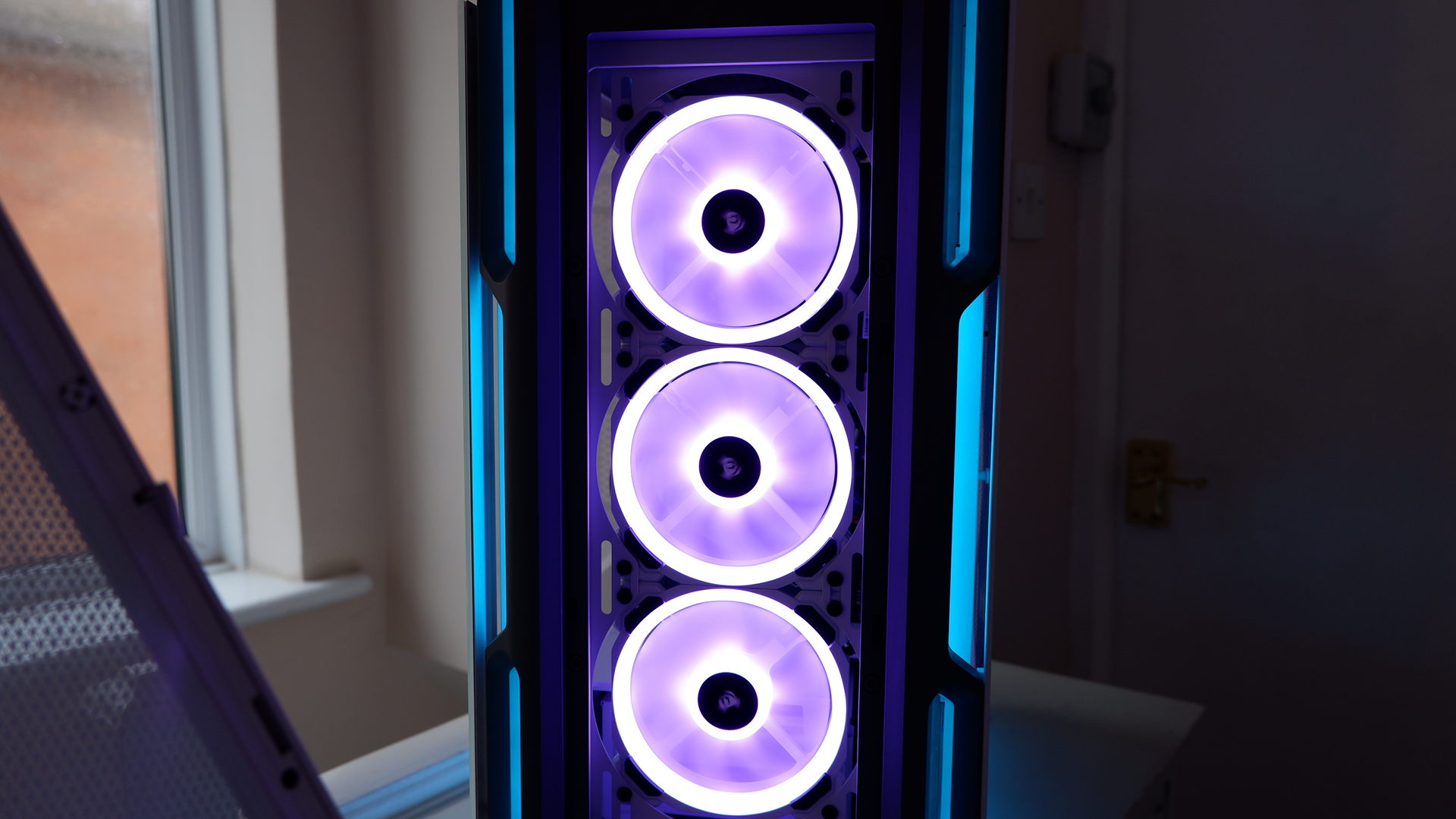
This PC case runs the risk of pulling the attention away from your precious components. You might have the flashiest GPU going, or even RAM sticks emblazoned with gems, but the first thing anyone is going to look at when they see your PC is all that RGB lighting.
There's tons of LED RGBs in the Corsair 5000T, the company's loaded more of them into this one case than any before. There are six RGB strips around the exterior of the case, and the three LL120 fans will light up all colours of the rainbow if you so wish. All of which is controlled via the Commander Core XT and the iCUE software.
Granted, it's not the smallest mid-tower PC case going, so if you're looking for one of those then look elsewhere on this list. Though it is perhaps one of the smartest and cleanest of the lot. This thing is beautifully crafted from steel, plastic, and tempered glass, and while that means it's pretty heavy, it's a real statement PC case for a high-end PC build.
Read our full Corsair iCUE 5000T RGB review.
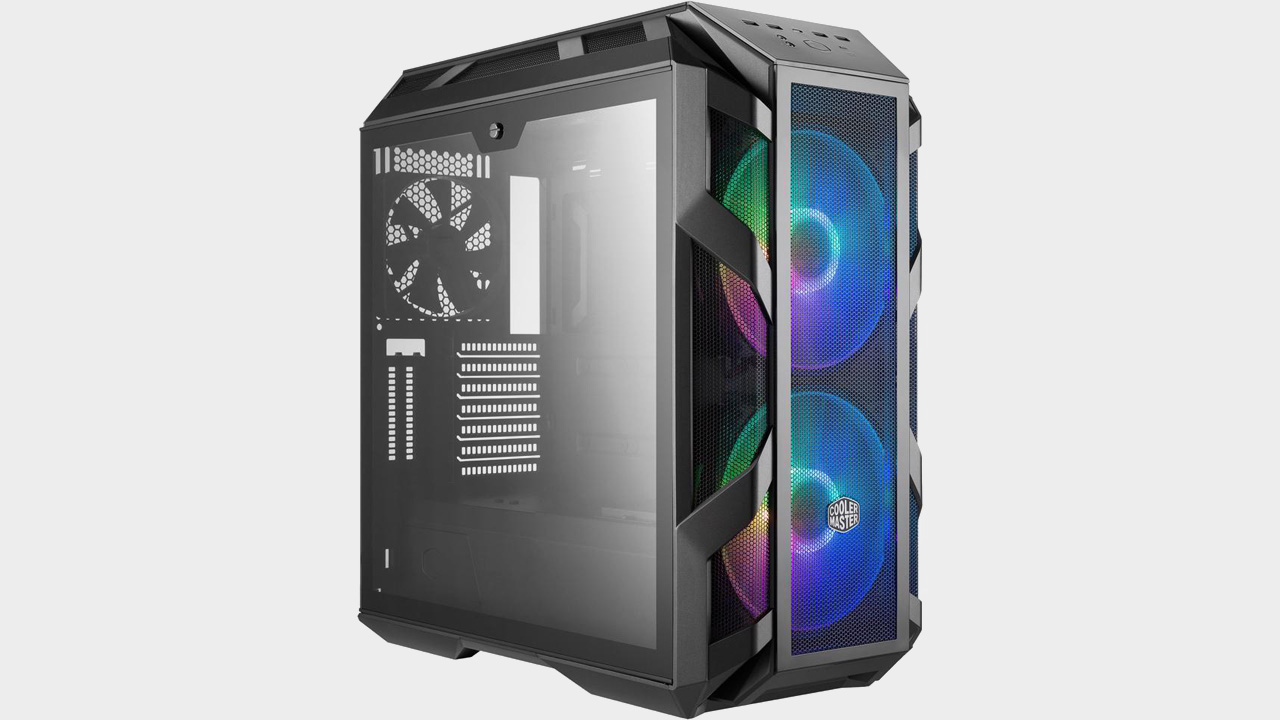
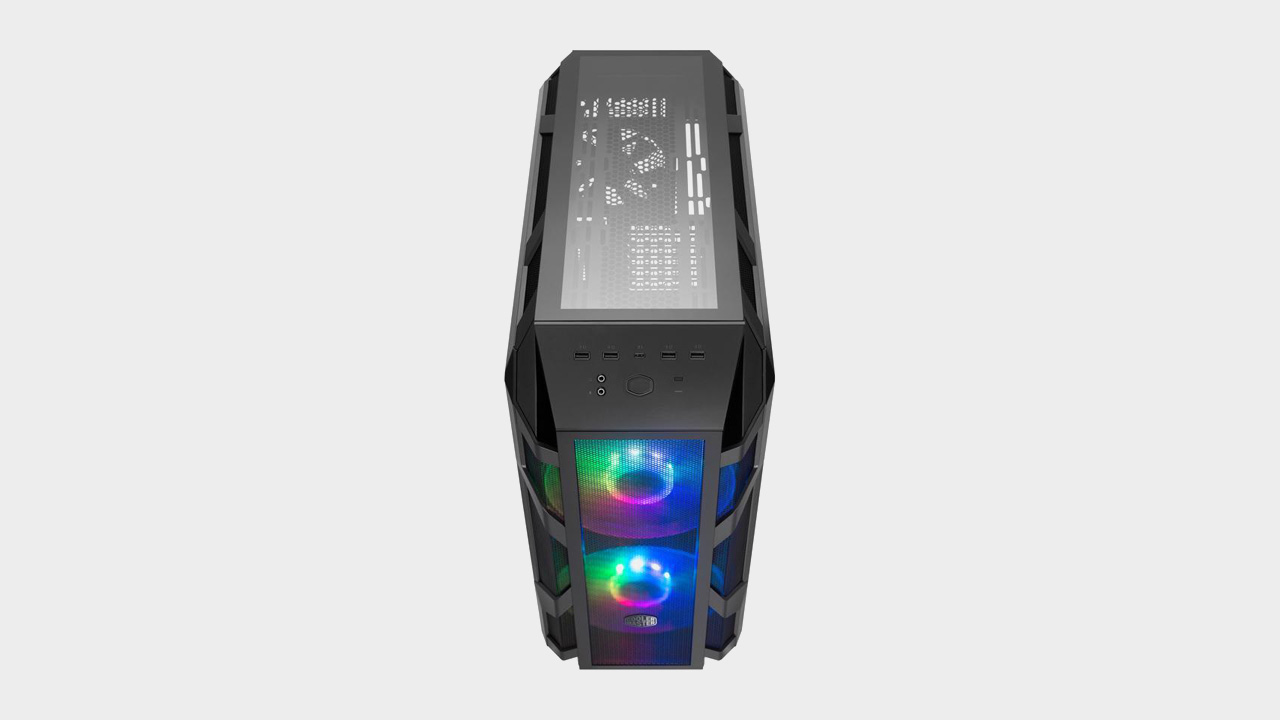
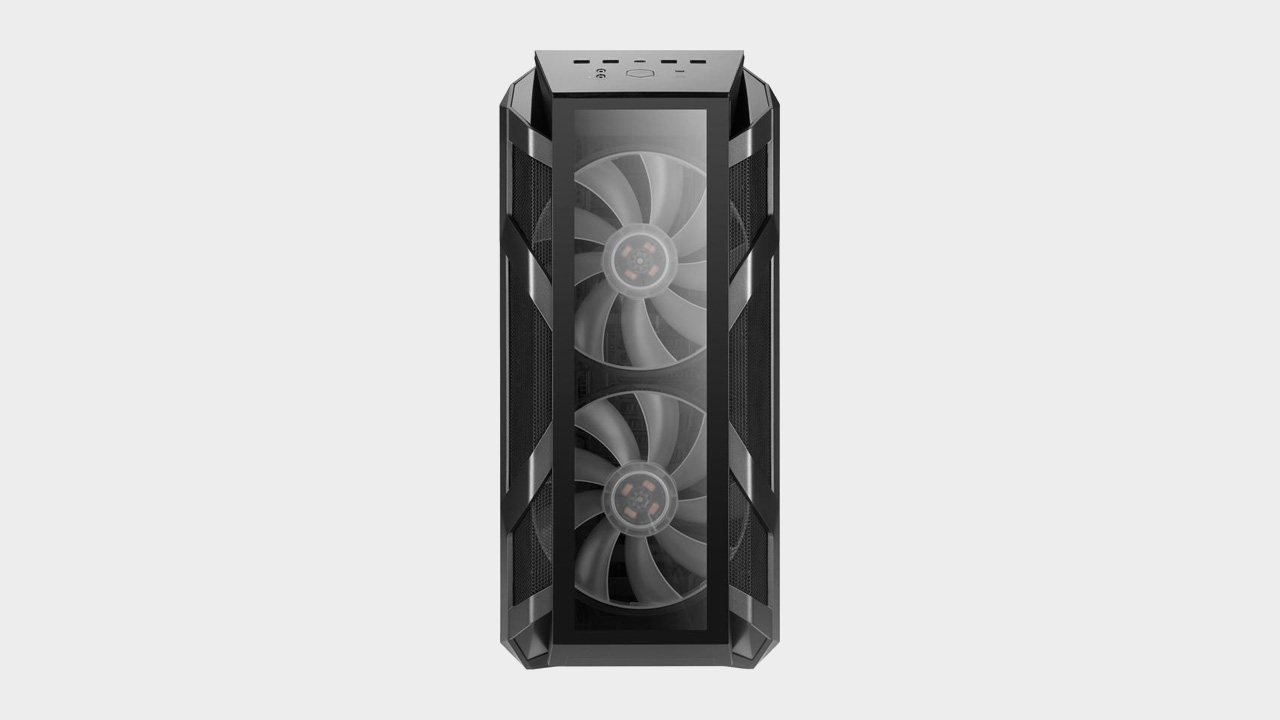
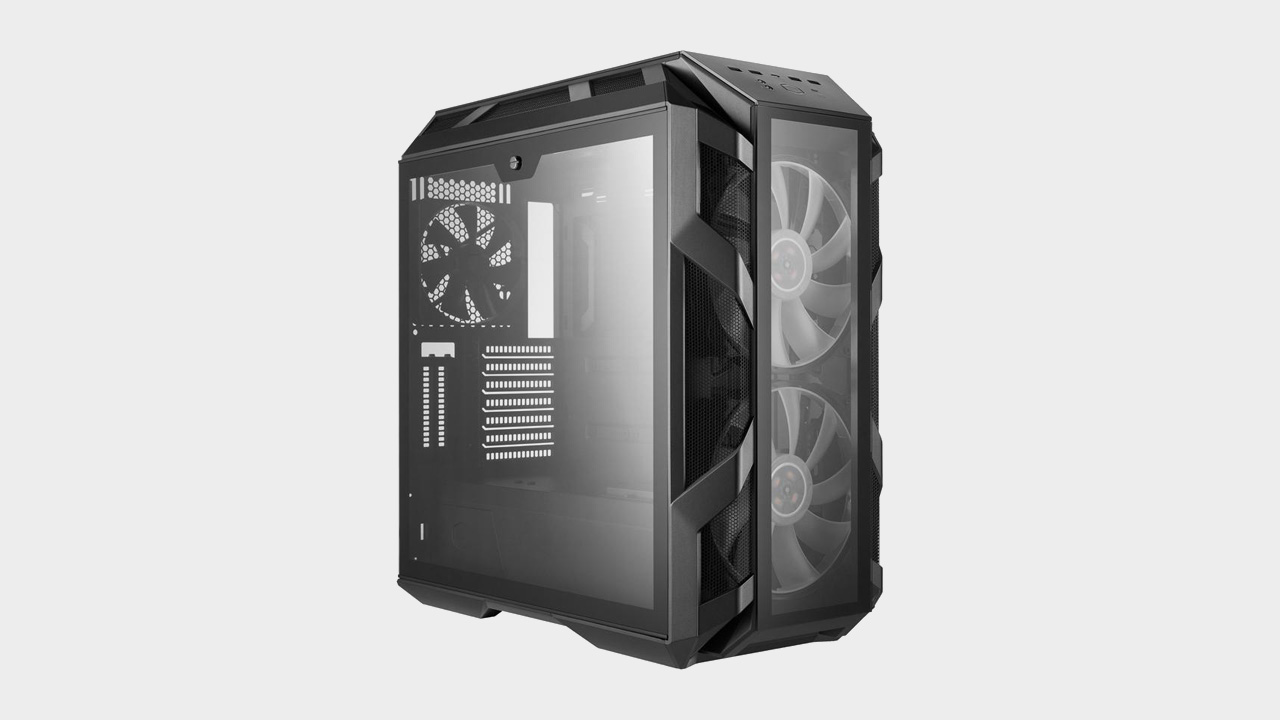
Cooler Master's H500M is the company's latest flagship mid-tower, but we'd rather it be called a full-sized tower. Measuring 21.4 x 9.8 x 21.5 inches, the H500M is one of the biggest mid-towers on this list. Thanks to its large size and internal layout, it's straightforward to build in and supports a huge variety of components and custom cooling options.
The H500M comes with two massive 200mm RGB LED fans installed, which do a fantastic job of increasing airflow out of the box. Other modern touches include a USB 3.1 Type-C connector and tons of modularity, including the option to choose between a mesh or tempered glass front panel.
Our only major issue with the case is the lack of easily removable magnetic dust filters for the front fan intake. Luckily, all of the mesh in the entire H500 line features a secondary filter layer that'll help keep dust out of your build. We mention the dust because the H500M features some serious airflow and comes prepared to keep the beefiest of gaming PCs cool.
Best mini-ITX case | Best full tower case | Best CPU cooler | Best DDR4 RAM | Best gaming monitor| Best gaming headset
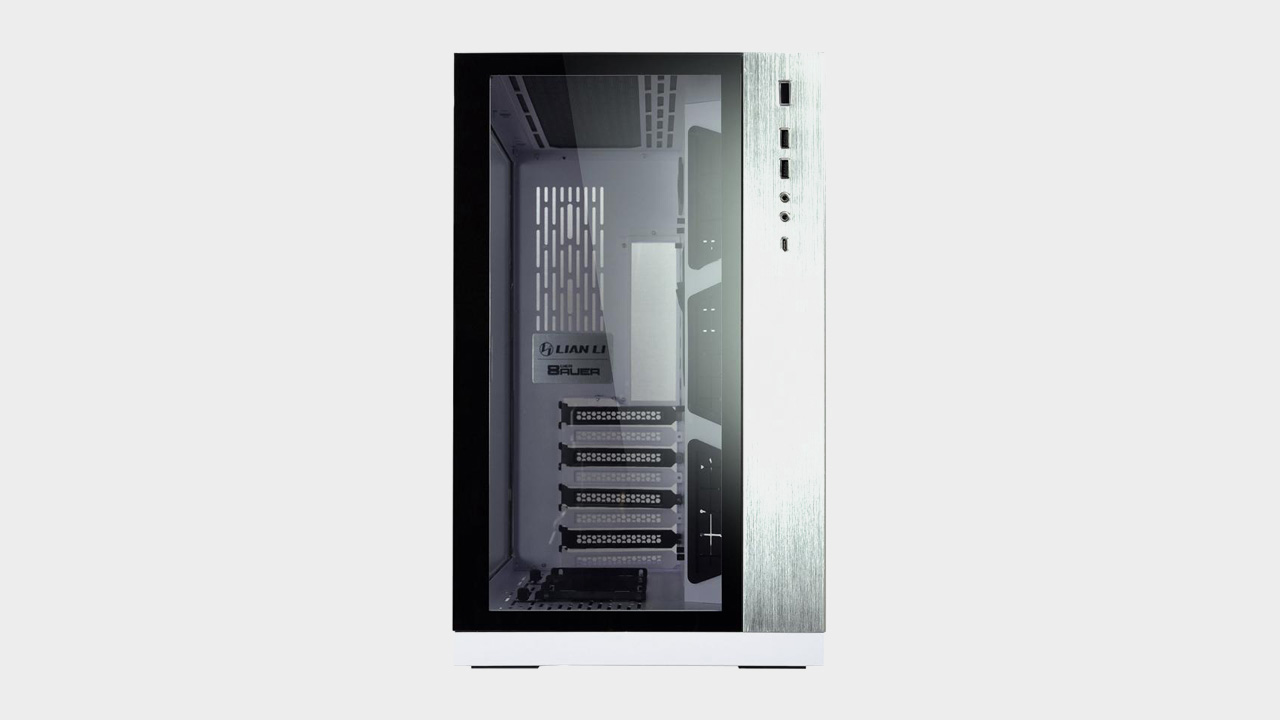
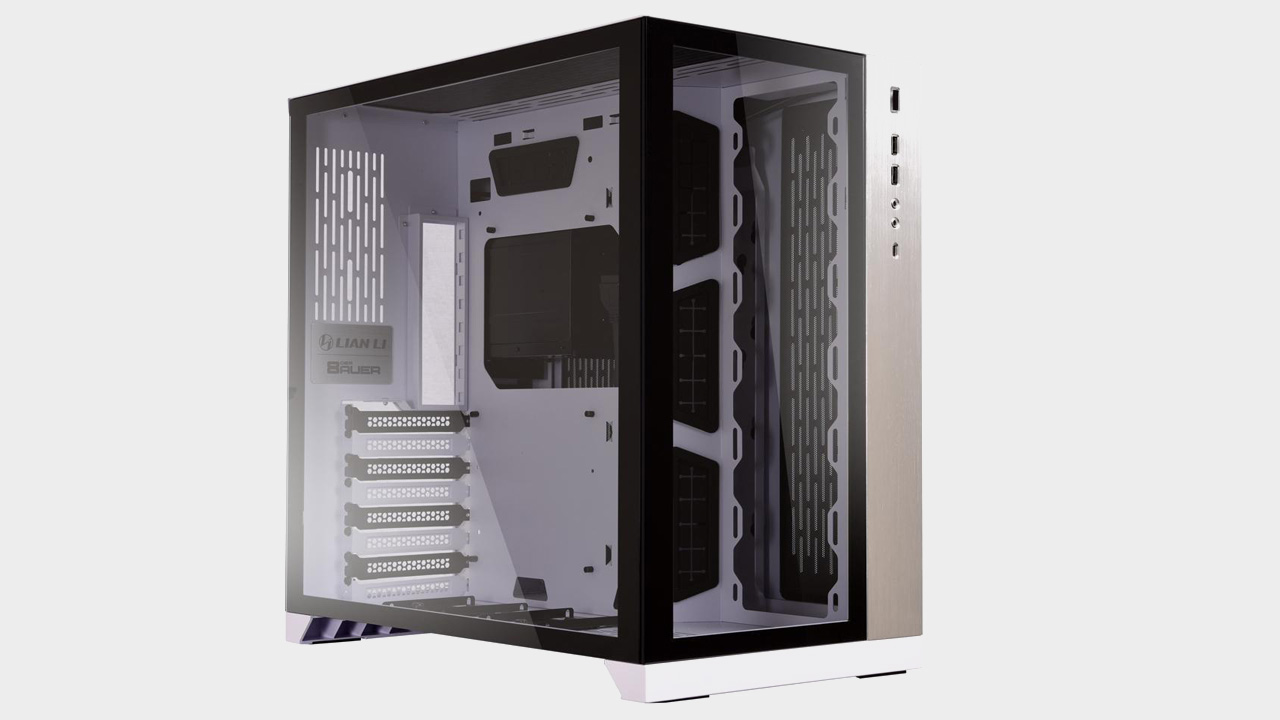
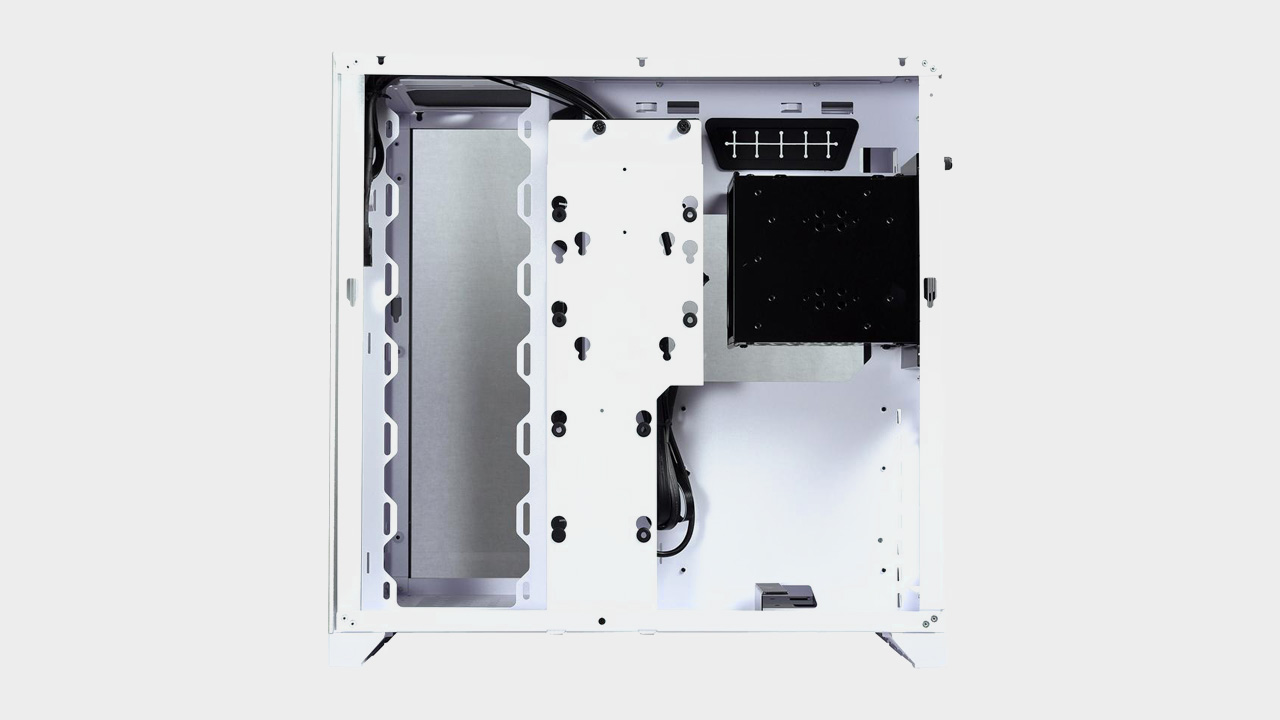
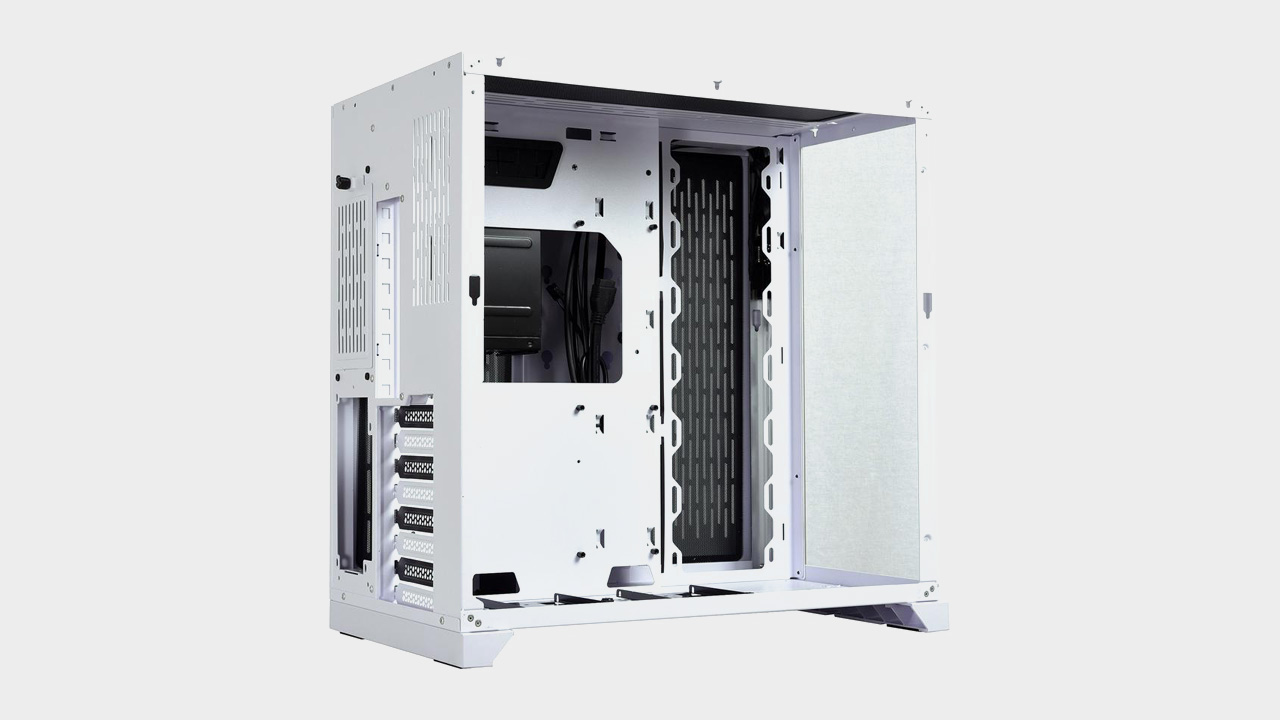
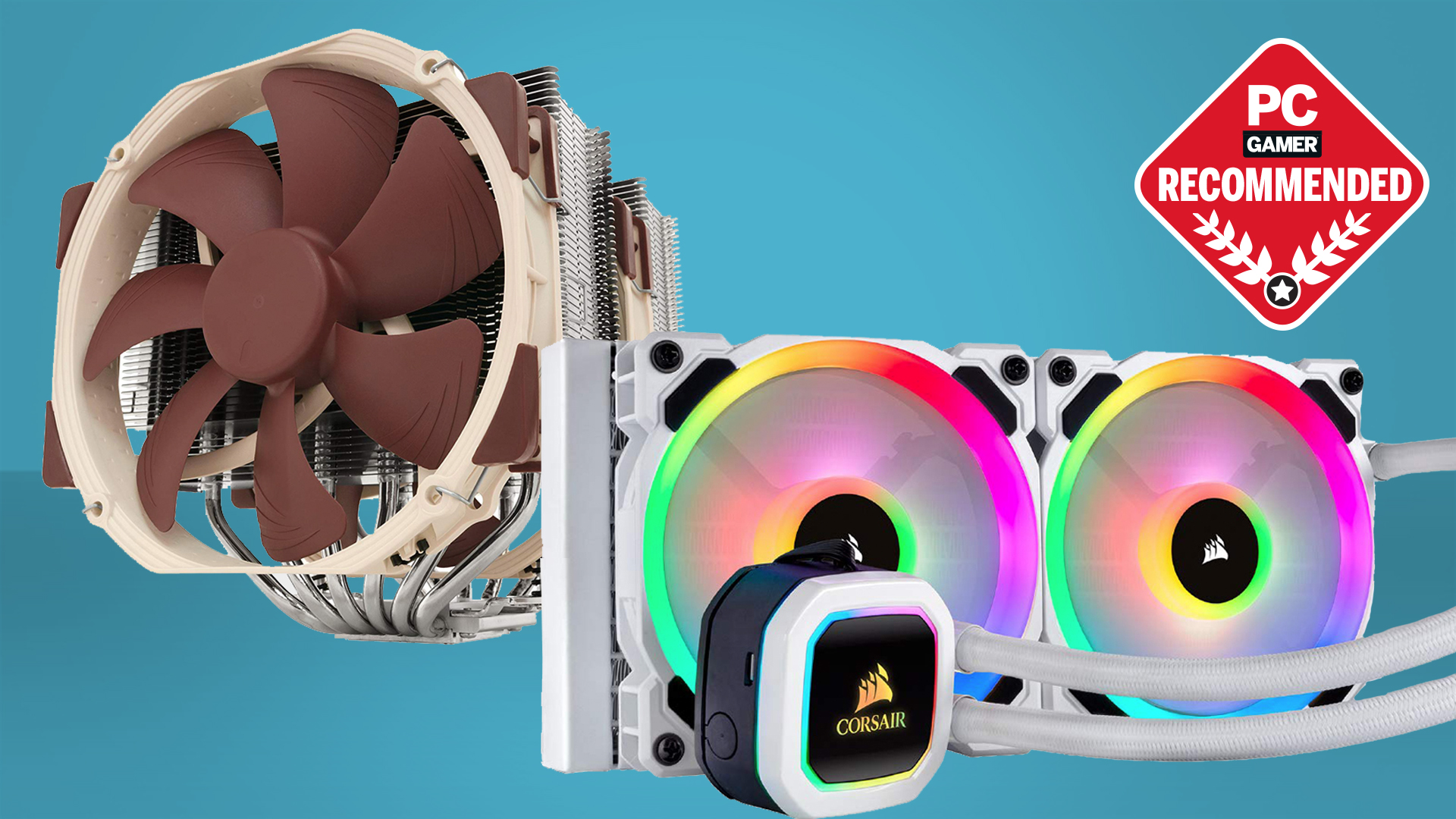
Best CPU cooler: keep your chip chilled in style
Best PC fans: super-silent and plastered in RGB
Best PC cases: big, little, and everything in-between.
If you're strapped for vertical space, the Lian-Li PC-011 Dynamic is a short and stubby alternative to some of the more long-necked PC cases we've seen. Although it doesn't come with the most precise instructions given its proprietary lighting tech, it is one of two Razer-designed PC cases in existence. And of the two, this one is the best.
Featuring a tempered glass design, installing components in the PC-011 is painless. Well, apart from some of the super-sharp angles that might spike the odd finger. You can remove the top and both sides of the chassis for easy access into its internals. Parts of the process that used to be stressful, such as liquid cooler installations, are now stumbling blocks of a bygone era.
Plus, if you're willing to shell out a bit more cash over the vanilla model, the PC-011 comes in a Razer Edition as well. Fully integrated with the San Franciscan company's Synapse 3 lighting software, you can even coordinate it with your other Razer-made peripherals.
Best mid-tower cases FAQ
Is a mid-tower case big enough?
Generally speaking, a mid-tower PC case will house all but the most extreme of system builds. If you're trying to cram in discrete water cooling loops for both your graphics card and high-end CPU, then you might find things are a bit too cramped inside. But for most high-end gaming PCs a mid-tower case will be plenty big enough for your needs.
The thing to keep in mind when looking at the dimensions of a prospective chassis is the length of graphics card you want to put inside, and where you might be mounting any water cooling radiators you might want. If those are going in the front, be aware that will cut down on the space you have for a GPU.
How much should I spend on a mid-tower case?
If you want to spend less than $50 on a new chassis you have to be willing to forgo such luxuries as easily accessible dust vents, different front panel connections, or high-end airflow. But things open up once you move into the $50 - $150 region. Once of our favorites, the Corsair 4000D Airflow can be picked up for less than $90 and provides all the extras you could want from a top PC case.
Are bigger cases better?
It is possible that a larger case can offer greater cooling, particularly with the potential for more airflow around the main heat generating parts of the PC, such as the CPU and graphics card. But without sufficient fans creating that airflow, and without them being properly positioned, a bigger case can still lead to heat build up.
The main benefit from bigger cases is that they're easier to build into and simpler to upgrade later on down the line.

Post a Comment